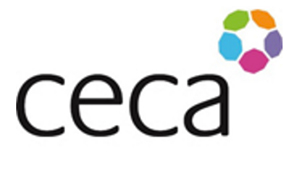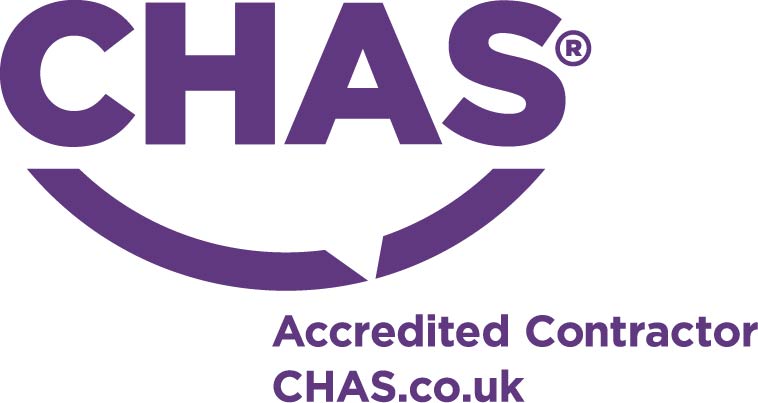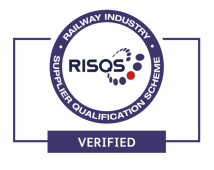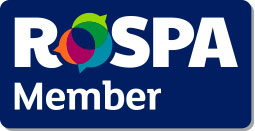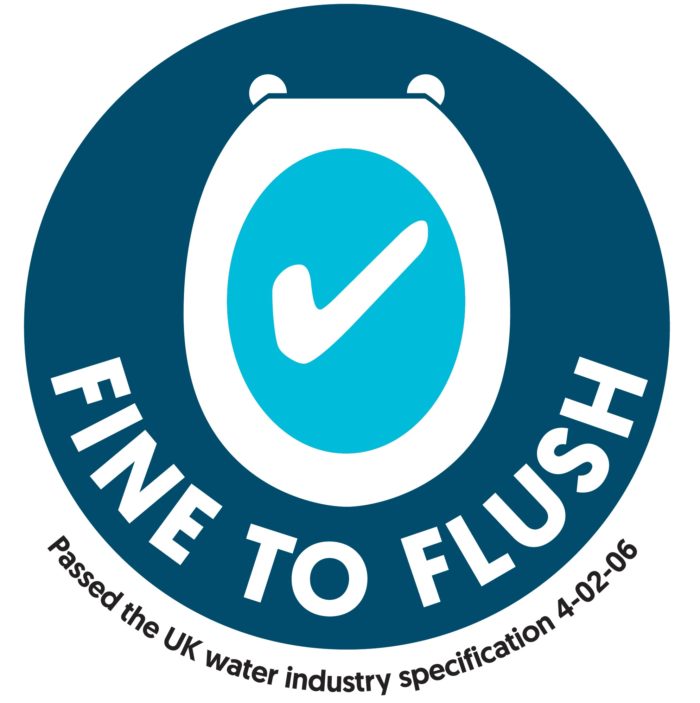
Andrex Washlets wipe range receive official 'Fine to Flush' standard
March 2020
Andrex is a major UK brand for household products. They have now received Water UK’s official ‘Fine to Flush’ standard on their range of wipes! Their Washlets wipe range have passed strict industry standard tests, proving that they will break up in the sewer system. They therefore will not contribute to the creation of blockages and fatbergs.
Water UK’s ‘Fine to Flush’ standard was created over a year ago, aiming to fight the prevalence of blockages and the rise of fatbergs in the UK sewer system. Fatbergs are the result of widespread inappropriate flushing habits across the nation.
Items such as wet wipes, cotton buds, sanitary products, and nappies are all regularly flushed down the toilet. Alongside this people often put fats, oils and various food substances down the drain. All of these do not break down when they enter the sewer system, they only serve to cause blockages.
You can see a full list of items that should not be flushed down the toilet or put down the drain in one of our previous blog posts’.
Not only are blockages inconvenient they can also be costly. There are approximately 300,000 sewer blockages annually costing the UK millions to resolve. But is it not just the financial cost that is concerning. Blockages also lead to increased flooding which impacts homeowners, business owners and the environment.
There are now a total of five ‘Fine to Flush’ products on the market. Make sure to look out for the Fine to Flush logo to make sure the product you are buying adheres to the industry standards and can safely be flushed down the toilet. And when in doubt bin it don’t flush it!
Is your home or business suffering from a blocked drain? DrainsAid offer quick, efficient and cost effective drain unblocking services from our base in Wakefield, West Yorkshire. To get more information, including a free no obligation quotation, call our experienced sales team on 0800 0180123. Or you can visit our contact page, here we have a contact form or email which you can use to contact us.
DrainsAid's Accreditations
March 2020
Here at DrainsAid, based in Wakefield, West Yorkshire, we love getting new accreditation. Peter Duffy Ltd and DrainsAid management systems have recently been accredited to ISO 45001:2018.
ISO 45001 is the international standard for Occupational Health and Safety Management Systems and recognises the commitment that we have made to the Health and Safety of our employees and the steps we have made to improve safety, reduce workplace risks and create better, safer working conditions.
This also recognises the commitment of the company’s leadership and the engagement of our workforce to drive health and safety forward to ensure we excel in the management and reduction of risks in the workplace.
ISO 45001:2018 accreditation surpasses existing 18001 standard and we are very proud to have been awarded this accreditation as it represents the continued commitment and dedication of Peter Duffy Ltd to continuously improving our health and safety standards.
Our other accreditations include:
- Constructionline Gold Membership
- ISO 14001:2015
- ISO 9001:2015
- SafeContractor Approved
- CHAS
- Achilles
- RISQS
If you have any drainage issues make sure to contact us using our contact form, call us on 0800 0180 123 or email us at service@drainsaid.com. We are a nationwide service providing preventative and reactive drainage and sewer repair services to both domestic and commercial clients.
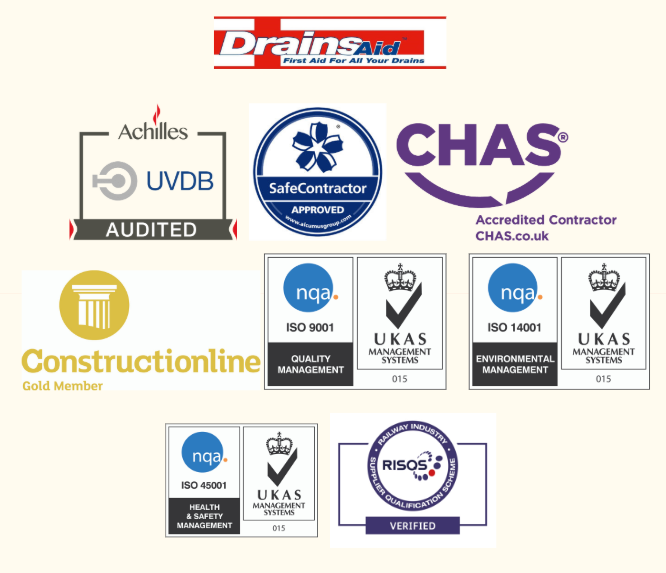
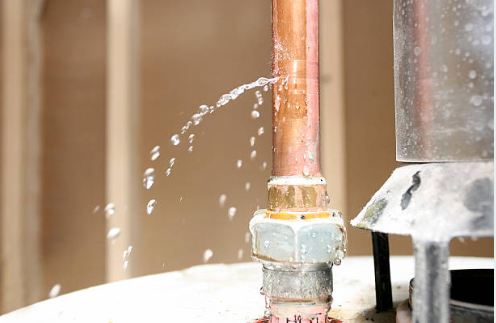
Smart Meters to be used by Yorkshire Water for leakage detection!
February 2020
Yorkshire Water is on a mission to reduce leakage. To do this they are using Itron Cyble technology. This revolutionary technology remotely monitors water flow information and relays this data back to Yorkshire Water twice a day.
This helps to identify when increases in demand are due to leakage and will enable Yorkshire Water to respond much quicker.
Yorkshire Water have chosen Sheffield from which to base a two-year pilot test. This will test the capabilities of the new technology.
The hope is that these new meters will ultimately help Yorkshire Water to identify leaks and bursts a lot faster than previously possible. This will hopefully save thousands of litres of water.
This technology represents a decisive move for water companies who are constantly working on new ways to reduce leakages and save water. This goal is a difficult one to achieve as the water network has many potential failure points, skilled labourers who specialise in leakage are hard to come by and water companies are facing increasingly adverse weather conditions.
If you have any drainage issues make sure to contact us using our contact form, call us on 0800 0180 123 or email us at service@drainsaid.com. We are a nationwide service providing preventative and reactive drainage and sewer repair services to both domestic and commercial clients.
The Importance of Flood Prevention - Storm Ciara and Dennis
February 2020
In the past two weeks the whole country has suffered the affects of Storm Ciara and Dennis. Storm Ciara hit last weekend February 8th and 9th, causing flooding in many parts of the country and winds of up to 97mph. The North of England was hit hardest with flooding affecting parts of Cumbria, Greater Manchester and West Yorkshire, including the market towns of Todmorden and Hebden Bridge in the Calder Valley.
The widespread flooding and damage caused by the winds which exceeded 90mph is expected to cost up to £200m in insurance claims, flooding 800 homes and leaving half a million people without electricity.
The trail of damage left by Storm Ciara continued as in the past few days the UK has again been hit by another storm, Storm Dennis. Storm Dennis wreaked havoc across Britain, forcing the cancellation of hundreds of flights and trains.
Over the weekend there were over 104 active flood warnings in place across England and Wales which urged people to take action, with another 369 flood alerts in place. Hundreds of homes and businesses risked being flooded, with many having no time to recover from the effects of Storm Ciara.
These two storms have caused such widespread damage and destruction across the country. They clearly show the need for flood prevention and quick and efficient responses when a flooding incident does occur.
Here at DrainsAid, based in Wakefield, we provide flood prevention services and responses from our Yorkshire base on a nationwide scale. In particular, serving Wakefield, Leeds, Sheffield and other parts of Yorkshire.
We offer:
- CCTV Investigations
- Cleansing and desilting
- Drainage mapping
- Repairs and maintenance e.g. CIPP lining
- Vegetation/debris removal
- Internal drainage repairs for buildings which are experiencing flooding, damp or mould e.. Brawoliner Technology.
By correctly maintaining drainage systems, you can avoid emergencies that can be disruptive and expensive to resolve. If a flooding incident does occur, we can provide emergency procedures and recovery.
To get in contact please call us on 0800 0180 123 or email us at service@drainsaid.com. Make sure you stay weather aware and keep up to date with the weather warnings that might affect you!
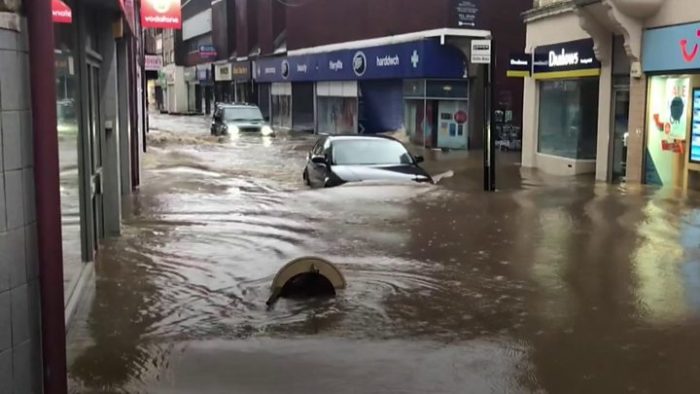
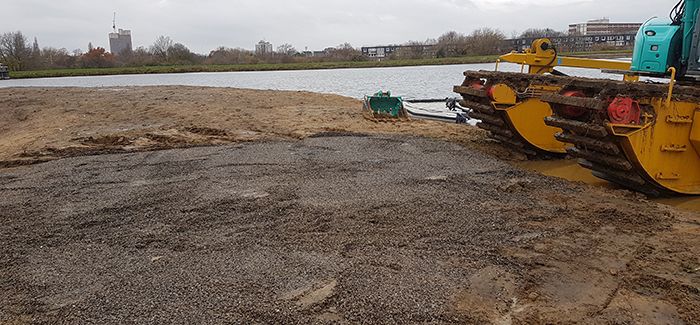
Thames Water Prevent Pipe Blockages by Utilising Recycled Mussels!
February 2020
Thames Water have come up with a revolutionary way to prevent on-site pipe blockages and keep waste costs down – by recycling mussels.
More than 35 tonnes of mussel shells, which usually cost millions of pounds to remove, were crushed and used to create four new tern rafts. All three of these rafts have now been installed on three reservoirs.
Thames Water have therefore successfully harnessed a previously problematic material, that often caused blockages, and put it to good use. The shells collected will also be used to lay pathways and fill potholes.
So far, Thames Water have managed to clear the equivalent of 4 Olympic size swimming pools full of shells from inside pipes and tunnels! This revolutionary idea exemplifies the innovative ways that companies can use materials they already have access to.
Do you have a drainage emergency you want taken care of effectively and in reasonable time? Call DrainsAid on 0800 0180 123!
We are a nation-wide service based in Wakefield, West Yorkshire. Our main area of operation is across Yorkshire including Leeds, York and Sheffield. We would be more than happy to discuss our various services including drain unblocking, drain cleaning and our many trenchless drain re-lining methods!
Call us now to discuss how we can help you and get a free no obligation quote!
The Disadvantages of Chemical Drain Cleaners
January 2020
When your sink or bath starts to drain slowly the first thing you might think to do is head to your local supermarket and pick up one of the available drain cleaner products. From branded products to supermarket own brand versions there is a great variety of chemical based products that seemingly offer a fast and easy solution to your drainage problems.
Despite the ease of picking up such products there are many reasons not to use them.
- This solution is often only short term – if you are noticing a problem it is likely quite considerable and these chemical solutions will do nothing if the problem is being caused by a larger blockage or damaged pipe.
- Chemical solutions can cause damage to your drainage system – the chemicals (particularly the acid) in these products can weaken pipes which can lead to fractures and collapses in your system.
- The chemicals are toxic – not only are these products very bad for the environment they can also cause irritation whilst you use them.
The next time you reach for the chemical cleaner or bleach to fix your drainage issues then think about tackling the problem with more of a permanent solution. Investigative CCTV surveys can be undertaken to determine issues in any area of your drainage system.
If you think you might have a drainage issues and would like to find out more about the range of services we offer here at DrainsAid then please visit our contact page or call us direct on 0800 0180 123.


The Impact of Microplastics in UK Waterways
January 2020
Plastic pollution is an issue that greatly affects our water systems. Humans have produced 8.3 billion metric tonnes of plastic since 1950. Plastic debris can come in all sizes with microplastics being defined as those that are less than five millimetres in length.
These microplastics can come from various sources including the breakdown of larger plastic debris, worn car tyres on roads and microfibres released from synthetic clothes when washed. Other causes include items such as wipes, sanitary products and cotton buds incorrectly flushed down the toilet.
UK Water Industry Research were responsible for a recent study conducted into the potential risks posed by nano-particles and microplastics. They intended to investigate the presence of microplastics and nano-particles in both wastewater and drinking water. The UKIR commissioned the Centre for Ecology and Hydrology to undertake the study. It was the first study of its kind in the UK to develop a robust approach to sampling and detecting microplastics in the treated water cycle.
The report found that currently 99.9% of microplastics are removed from both drinking and wastewater during the treatment process. The study therefore confirmed that both water and wastewater treatment processes were functioning effectively and as intended in the removal of microplastic particles from raw water and wastewater.
However, it would greatly benefit the whole UK water system if the microplastics never entered it in the first place. The problem of microplastics making their way into water courses is one that can be tackled by avoiding single use plastics both in businesses and by individual consumers. Microplastics are not only harmful to humans but they also pollute water and air and are harmful for fish and other marine animals.
To find out more about our range of CCTV, drain unblocking and trenchless re-lining services and how we might be able to help you with any drainage issues you are experiencing please give us a call on 0800 0180123. Alternatively you can email us at service@drainsaid.com.
New Year...New Home? Our pre-purchase CCTV surveys will help ensure your move goes to plan
January 2020
It is 2020! Happy New Year! Christmas is over and all of us here at DrainsAid are back in the office and ready to help with any drainage issues you may encounter this year!
Whatever you have planned for 2020 making sure your drains are functioning effectively is a simple way to set you and your home in good stead for the new decade.
At DrainsAid we offer a range of drain and sewer CCTV investigations. Whether there are problems with your drainage system that you cannot identify, or you want to understand the extent and condition of your drains, our CCTV surveys provide you with detailed information.
One of the most valuable uses of our range of investigative CCTV services is our pre-purchase surveys. It is just as important to consider the condition of a potential property below ground as above. A report of the full pipework below ground is important in identifying any issues that may result from root infestation or structural defects, that will often worsen with time. Our pre-purchase surveys provide video footage of the survey, a plan of the site alongside written reports and data sheets.
We carry out surveys using various types of equipment from main line crawlers, which offer a real time surveying package, to push rod cameras which are perfect for domestic use as they can be used to inspect pipes ranging from 50mm to 225mm as well as negotiate multiple bends in very tight spaces with limited access. We also offer sewer location surveys and laser profiling which can accurately map existing drainage layouts including cover levels and invert levels as well as providing accurate feedback information about the shape, capacity and deformation of pipes.
To read more about how our range of investigative surveys can identify a range of issues and map entire drainage layouts read our recent case study in which we carried out a full CCTV and GPS survey to map the entire on-site drainage layout for a Yorkshire based brewery. Read more about this case study on our website at https://www.drainsaid.com/case-studies/drainsaid-maps-entire-on-site-drainage-layout-for-local-brewery/. You can also read more about a variety of our other past projects on our case study archive at https://www.drainsaid.com/case-studies/.
To find out more about our range of CCTV surveys and our pre-purchase surveys please visit our website. Get in contact with us by calling 0800 0180123 or emailing us at service@drainsaid.com and we would love to discuss how we can help you!

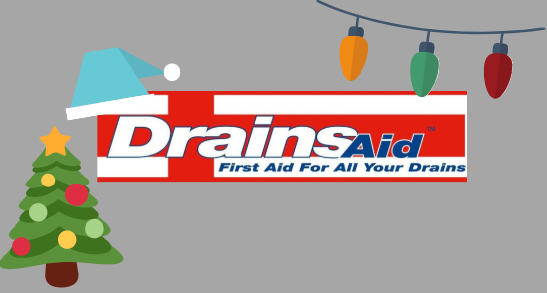
Remember your drains this Christmas!
December 2019
It is almost Christmas! With just over a week to go the festivities are in full swing. One thing you might not think about this festive period is your drains.
Christmas can be a strenuous time for drainage systems. The cold weather increases the chances of blockages from pipes or water tanks freezing. It is vital to try and prevent pipes from freezing as this can become a very costly problem. Alongside this if drains and manholes already are not functioning at an effective level then the increased rainfall or melting ice and snow can put pipes under increasing strain.
As well as the weather putting our drains under strain we also tend to prepare and consume more food than at any other time of the year. Fats and greases from roasts, Christmas dinner and other big meals during the festive period are very harmful for our drains if disposed of incorrectly.
Cooking Christmas dinner can be stressful and thinking of properly disposing of the fats and greases during the cooking process is often not the first thing that springs to mind, but it is very important. Disposing of fats, grease, vegetable peelings, gravy and leftover food down your drain can not only lead to blockages but also contributes to fatbergs which is already a rising problem for drainage systems nationwide.
Therefore, it is important to make sure that all unwanted food, fats and greases are disposed of in the bin rather than down your drain. Whilst it is tempting to dispose of fat quickly down the drain in the long term it is of no benefit to your drainage system. Also using things such as plughole strainers can be helpful as it enables any residual pieces of food to be put in the bin rather than ending up in your drain.
So this Christmas remember that foods, fats and greases all belong in the bin not down your drain!
Should you encounter any drainage problems this festive season make sure to get in contact with us on 0800 0180123 or at service@drainsaid.com. You can also find out more about our full range of CCTV, cleaning and drain re-lining services at www.drainsaid.com.
Southern Water announces major plan to conserve water supplies in the region
December 2019
Southern Water has recently published its Water Resource Management Plan which sets out the company’s 50 year plan for ensuring the south east does not run out of water supplies. This plan is crucial as the threat of climate change continues to increase the pressure on national water supplies.
The region is already beginning to face the increasing impacts of shortening water supplies, especially when flows drop in summer or after a dry autumn or winter. This new plan will cost £800 million and will see a raft of new measures including the building of a new reservoir.
Other measures include increased pipelines across the region, a link to Bournemouth Water and building desalination plants and recycling water in the future.
The multifaceted plan could not come at a better time as the United Nations general recently warned at the COP25 meeting on climate change in Madrid that the point of no return in terms of the global impact of climate change is approaching.
To view the in-depth report which details the forecasts for demand levels, supply levels and environmental impacts as well as the strategies for the different areas within the region visit the Southern Water website at: https://www.southernwater.co.uk/our-story/water-resources-planning/water-resources-management-plan-2020-70.
If you would like to find out more about our range of cleaning or lining services or how we can help with any drainage issues you are currently experiencing then please visit our website, call us on 0800 0180123 or email us at service@drainsaid.com.


Simple Tips for Conserving Water
December 2019
Last week our blog post explored the worsening impacts of global water scarcity, including the critical conditions in Murrurundi, New South Wales, who ran out of water in January. Water is a finite resource, with over 97% being too salty for human use, making conservation critical. In fact, the situation is becoming so bad that the Environment Agency warns that by 2050 people in England could be facing water shortages.
The conservation of water therefore greatly benefits the environment and helps to tackle the worsening impacts of climate change but saving water can also be beneficial for individuals. By reducing water consumption you can reduce your water bill too.
Whether it is on an individual level or even better your whole household or business organisation reduces their water consumption, there are many ways to conserve water:
- Check for toilet leaks – these leaks can be hard to detect but can be wasting gallons of water on a daily basis
- Take shorter showers – when showering turn it off in between soaping up and rinsing. The same goes for when you are using shampoo and conditioner on your hair. Save the water simply for rinsing when needed.
- Install water-saving shower heads or flow restrictors
- Turn of water whilst you are shaving or brushing your teeth
- Only wash full loads in your washing machines
- If you hand wash dishes fill up the sink/washing up bowl rather than leaving the tap on to rinse the dishes
- If you use a dishwasher make sure to always completely fill it before putting it on
- Check all pipes to check for leaks
- Only boil the amount of water you need – do not fill your kettle all the way up unless you need to
- Avoiding boiling foods if you can – steam them instead of possible
There are many more ways that you can save water whether it be at home or at work. So, the next time you leave the tap running or are tempted to stay in the shower for an extra five minutes think do you really need to? To avoid water scarcity worsening and impacting population across the globe we need to act now.
If you are at all concerned about your drainage systems or just want to check whether there might be leaks or abnormalities in your pipework or drainage system that is causing water to be lost then please call us on 0800 0180123 or email service@drainsaid.com . We would be happy to discuss with you the best solution or talk through the investigations we can undertake to identify any problems.
Global Water Scarcity: How does Murrurundi cope with having no water?
November 2019
Murrurundi in New South Wales is a very real example of the increasing problem of global water scarcity. The town is in crisis as their water supplies completely ran out in January, meaning they now rely on water supplies being carted in by truck everyday from surrounding areas.
The town is currently under Level 6 water restrictions which is a grim prediction for what other country towns face in the future as drought continues to plague the region. The severity of the restrictions limits things such as showering, laundry and the care of livestock and plants, making daily life in Murrurundi very difficult. Many of the residents also have to buy bottled water instead of drinking the water that is supplied to the town via truck due to it’s heavy chlorine smell, with many believing it be undrinkable.
The local council are currently building a pipeline from Scone, where the water is currently carted in from, to Murrurundi. For this the council have received a grant from the New South Wales State Government, but the pipeline is not set to come online until 2020.
Whilst the situation is currently being mitigated by daily water deliveries and the development of the pipeline, the source of the problem is clear, climate change. The link between climate change and increasing drought is that as more greenhouse gas emissions are released into the air, it causes air temperatures to increase, more moisture also evaporates from land and lakes, rivers, and other bodies of water. Droughts are therefore worsening worldwide, from the United States to many parts of Africa and Australia.
Adopting sustainable water practices are crucial to improving the situation. We desperately need to change our attitudes to water consumption and stop using the finite resource so wastefully.
If you would like to read more about the situation in Murrurundi and how it impacts on the local residents please go to https://ab.co/33zkbJL.
Here at DrainsAid we are specialists in trenchless technology. If you would like to find out more about how we can help with any drainage issues you may experience then please visit our website or call us on 0800 0180123.


Revolutionary Wastewater Treatment Technology
November 2019
I-PHYC, a revolutionary and award-winning enterprise, have developed a wastewater management system which uses algae and cutting-edge technology to extract nutrients from sewage and wastewater.
The company specialises in sustainable water recycling and valuable nutrient recovery. This new technology can reduce pollutants, such as phosphorus and nitrogen, and the biomass that is recovered can be used to generate biogas and fertiliser.
The system also helps to reduce carbon emissions as the algae captures and retains the emissions. What sets this technology apart is that unlike other wastewater management systems it does not rely on light being shone on the surface of the algal mixture.
I-PHYC have recently secured funding from the Midlands Engine Investment Fund, and the University of Bristol Enterprise Fund. This increased funding will greatly benefit the company and enable them to continue to expand their revolutionary technology across the country.
Wastewater treatment has such a crucial impact on the current state of the environment, especially given only 14% of rivers in the UK currently meet the minimum ‘good’ standard.
Pollutants, such as phosphorous, carbon and plastics are detrimentally affecting our rivers on an ever-widening scale. This means that I-PHYC’s technology provides a revolutionary, chemical free and natural solution that will massively help in the much needed clean up of polluted rivers and coasts.
You can read more about this revolutionary technology and the increased funding they have recently received here.
If you would like to find out more about how we can help with any of your drainage issues please visit our website or call us on 0800 0180123.
Widespread Flooding hits Yorkshire
November 2019
Over the past week the UK has been hit with torrential rain. Across Yorkshire this has resulted in widespread flooding. South Yorkshire has been particularly affected with hundreds having to spend the night in the Meadowhall shopping centre in Sheffield last week. The city’s streets had flooded, leaving hundreds stranded in the shopping complex.
Elsewhere, in Rotherham people had to be rescued by boat by firefighters. The flooding caused widespread disruption across Yorkshire from the back end of last weekend and into the weekend. Road traffic and railways were, and still are, affected with people being advised to always check before they travel.
There are currently 44 flood warnings issued by the Environment Agency across the country. Seven severe flood warnings remain in place for South Yorkshire as further downpours are set to hit and water levels remain high in already flooded communities. These severe warnings issued for various areas along the River Don mean there is a potential danger to life.
So far around 400 homes in the North have been flooded and 1,200 have been evacuated. One of the communities which was badly hit was Fishlake in Doncaster. Hundreds of homes were flooded and the village became completely cut off by water from the River Don. The only way to get into the village was by tractor or boat. The flooding was so severe that large parts of the village were submerged under 1 metre of water and about half of the 700 local residents had to be evacuated. The community continues to be at great risk.
The Environment Agency have advised people to sign up for flood warnings. To see updated information on flood warnings and risks near you then please visit https://flood-warning-information.service.gov.uk/warnings.
Make sure if you are in Yorkshire, or anywhere else in the country currently affected by this weather, to keep up to date with weather warnings and the areas where flood warnings are in place.
If you have any concerns about your drainage systems and how they are coping or will cope as the turbulent and wet weather continues then please get in contact with us here at DrainsAid by calling 0800 0180123 or email us at service@drainsaid.com.


How best to prepare your home to avoid drainage problems this winter
November 2019
The clocks have gone back and Halloween has past, meaning that the winter is fast approaching. Whatever you have planned for the festive season don’t let a drainage emergency ruin your celebrations. Here at DrainsAid, based near Leeds, we are here to help if you are at all concerned about your pipes and drains this winter.
Increasingly cold weather can cause a range of drainage problems. It is very important to do all you can to prevent water in pipes or storage tanks from freezing. Alongside this if any drains or sewers are already not functioning properly, the melting of ice and snow can further exacerbate the strain which the pipes are under. So, if you notice anything you think could be problematic, or just want to get your pipes checked, it is best to do this before the weather gets colder.
Should water freeze in your pipes it will create blockages, potentially blocking off entire pipes. This will cause an unwelcome wastewater back up as eventually nothing will be able to flow away. As well as causing blockages, a frozen pipe can cause much more expensive damage. Ice expands, so if the water in a pipe freezes, it is likely to swell, putting increasing pressure on your pipes. This may cause them to split or burst. The structural damage that can result from a split or burst pipe can be very costly to fix.
As avoiding burst pipes and other potentially expensive drainage emergencies is so important, here are some of the things you can do to protect your pipes this winter:
1) Check your insultation is sufficient and of the right type. Make sure that pipes in cold areas of your home, such as attics or basements, are especially well insulated.
2) Ensure that your property is not left empty for long periods of time so that water is not idly sitting in the pipework.
3) Ensure your heating works adequately and that it is used throughout the property.
4) Open an attic hatch if you have one and cupboard doors if they contain pipes as this will encourage warmer air to circulate around the pipes.
The steps above should help to prevent you having any drainage emergencies this winter. However, if you do encounter any problems then please contact us. Specialists in trenchless technology, we can undertake a range of rehabilitative and remedial works to help get your pipes and drains functioning properly again as soon as possible. Call us on 0800 0180123 or visit https://www.drainsaid.com/ for more information on how we can help you.
The Benefits of Keyhole Engineering
October 2019
London’s Victorian sewer systems are simply not able to cope with the urban metropolis that London has become. As the city’s population continues to soar the systems cannot keep up. Repairs are occurring very frequently across the city, one of which was the recent Thames Water’s King’s Scholars’ Pond (KSP) sewer rehabilitation scheme. This was a £15 million project which required the use of new and innovative technology, keyhole engineering.
Created just for this project, this new form of technology allowed a sewer in one of London’s busiest areas to be repaired, whilst creating minimal disruption to the public and ensuring that there was no impact on roads or underground rail. This new, state-of-the-art solution enabled the Victorian built sewers to remain fully operational throughout the project. Their task was rehabilitating a 2.1m tall and 1.7m wide sewer originally built in 1848.
To carry this out Thames Water strayed away from using a traditional dig solution and in the process saved approximately £23 million and over 26,000 tonnes of embodied carbon. They also avoided any disruption to road users or railways, a crucial factor due to the busy location of the site and intersection of the sewer with the London Underground structure.
This innovative project therefore traversed high risks but was overall very successful in bettering London’s infrastructure without causing undue disruption to the bustling city and its residents.
This innovative project therefore illustrates the clear benefits of using trenchless technology and steering away from traditional dig solutions. They not only save money and are often more environmentally efficient but they greatly minimise disruption. Here at DrainsAid we are proud to offer a range of trenchless solutions for a variety of drainage and sewer problems. To see our full range of techniques please visit our website https://www.drainsaid.com/ or call us on 0800 0180123.
Read more about this project here: https://wwtonline.co.uk/features/through-the-keyhole-the-kings-scholar-pond-project.
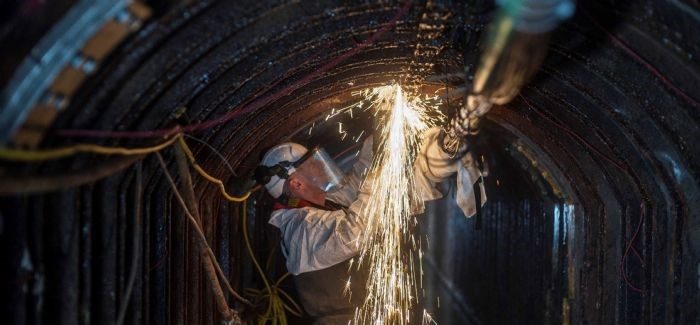

Yorkshire Water set to trial electric vehicles to replace diesel at their Leeds site
October 2019
Yorkshire Water is set to begin trialling electric vehicles at their Knostrop Energy and Recycling Centre in Leeds. Site product and process engineers will be ditching diesel power for at least three months, using four new electric vehicles to move Yorkshire’s largest wastewater treatment works.
This initiative forms part of the company’s wider commitment to be net-zero carbon by 2030. Alongside the recent opening of its new £72 million anaerobic digestion facility which turns waste into energy they also have a wind turbine in place, meaning the site is often completely self-sustainable.
Everyone at Yorkshire Water is excited to trial the new vehicles and David Hibbs, the Yorkshire Water transport general manager, has expressly highlighted how important protecting the environment is to the company.
Yorkshire Water is an innovative and conscientious company and they have big plans to continue to save energy and are continually looking for ways to reduce their carbon footprint.
Campaigns such as this are crucial for bettering our environment and battling the ever-increasing problems that climate change is bringing about. Other companies need to follow in Yorkshire Water’s example and focus their attention on creating policies that work towards environmental improvement.
Read more about Yorkshire Water’s new electric vehicles plan here: https://bit.ly/35G2lag.
To find out how we can help with your drainage issues please visit https://www.drainsaid.com/ or call us on 0800 0180123.
The UK Plastics Pact
October 2019
What is the UK Plastics Pact?
The UK Plastics Pact is a recent initiative developed by WRAP which aims to create a circular economy for plastics. By bringing together big businesses, NGO’s and the government they aim to tackle the problem of plastic pollution by creating a sustainable system for plastic. This involves eliminating the need for single use plastics, revolutionising how plastic products are designed and produced and challenging the current throw away culture.
The various members currently signed up are responsible for 85% of plastic packaging that is sold through UK supermarkets. These include a range of brands such as ASDA, ALDI, Danone, Boots, Arla, Sainsbury’s and Waitrose. They have all pledged to tackle problematic or unnecessary packaging. A plastic item is defined as problematic if it’s use is avoidable or reusable options are available, if it is non-recyclable or hampers the recycling process or if it pollutes our environment.
To begin with 8 problem plastics have been identified:
- Disposable plastic cutlery
- All polystyrene packaging
- Cotton buds with plastic stems
- Plastic stirrers
- Oxo-degradables that break down to create micro-plastics
- Plastic straws
- PVC packaging
- Disposable plastic bowls and plates
All the businesses that have signed up have agreed to act as fast as possible, aiming to eliminate these 8 plastics by the end of 2020. This is just the beginning though as this campaign aims to re-define how plastics are made, used, re-used and recycled.
What this means for our water systems?
Plastic pollution is a critical issue for our water systems. Eight million tonnes of plastic are dumped into our oceans every year. This is awful for the wildlife and decreases the cleanliness of the environment. According to the WWF 90% of birds have plastics in their stomachs. Plastic pollution is a continually worsening problem, with it being estimated that unless urgent change is enacted there will be more plastic in the oceans than fish by 2050.
Such pollution places ever increasing pressure on our water management systems to cope with these materials that do not belong in them. Our sewer systems, waste water management and fresh water systems are all compromised by increasing plastic pollution. These impacts vary but include plastics clogging our drainage systems which leads to flood of low-lying areas and micro-plastics contaminating our drinking water.
The UK Plastics Pact is therefore a vital campaign which is tackling an ever worsening issue. You can read more about it here. Make sure to contact us if you have any drainage issues which we can help with.
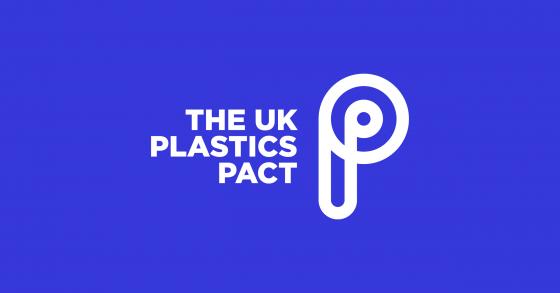

It is Unblocktober!
October 2019
October doesn’t just mean we are that bit closer to Christmas, it also means it is Unblocktober. This is the world’s first month long campaign, driven by the British public, aimed at improving the health of our drains, sewers, watercourses and seas. Unblocktober represents the need to tackle the ever-increasing pressure we are putting on our sewer networks.
For far too long products such as oil, grease, wet wipes, cotton buds, bandages and other non-flushable products have been flushed and poured into our drains. This has led to the creation of fatbergs which are enormous masses made up of the fats, oils and greases listed above. These fatbergs block drains, sewers and overall cause them to work far less effectively. A recent example is a 64 metre fatberg found in Devon which took workers 8 weeks to remove and was found to predominantly be made up of wet wipes, sanitary towels and other household products.
When our drainage systems work less effectively as a result it can have a range of detrimental impacts including foul waste flooding, pollution and an increased need for excavation and repair, causing roadworks. Alongside this the flushing of products such as nappies, period care products and cotton buds contribute considerably to plastic pollution as they contain hidden plastics. It is estimated that approximately 8 million pieces of plastic pollution currently find their way into our rivers and seas everyday and so plastic pollution is a global crisis that Unblocktober is helping to address.
Unblocktober is therefore a crucial campaign raising vital awareness of the need to stop contaminating our drains and sewer systems with fats, oils, greases and various household products. DrainsAid based in Wakefield is very happy to be supporting such a worthwhile cause and getting involved with this campaign couldn’t be easier! Unblocktober simply wants everyone to pay more attention to what they put down the drain and commit to not putting the following items down the drain:
- Cooking oil
- Food – even crumbs
- Butter
- Margarine
- Lard
- Cooking sauce
- Wet wipes
- Period products – whether that be sanitary towels, tampons or applicators (as all contain plastics!)
- Nappies
- Condoms
- Cotton buds
- Contact lenses
- Bandages and plasters
- Dental floss
- Razor blades
Unblocktober already has many supporters including Anglian Water, Thames Water, The Rivers Trust, Southern Water, Future Water Association, United Utilities, Yorkshire Water and United Kingdom Society for Trenchless Technology.
Like many of these companies throughout the month we will be supporting Unblocktober across our social media platforms so make sure to follow us on Twitter, Facebook and LinkedIn to keep up to date on how we are getting involved!
Should you have any drainage issues then please call us on 0800 0180123 or email us at service@drainsaid.com and we will be happy to chat about how we can help.
English water companies commit to planting 11 million trees by 2030
Water companies in England have announced ambitious plans to plant 11 million trees, part of a wider commitment to improve the natural environment and aim to achieve a carbon neutral water industry by 2030.
The proposals will see trees planted on around 6,000 hectares of land across England together with work to restore original woodland and improve natural habitats that themselves provide carbon capture. While some of this land is owned by the water companies themselves, additional land will be provided by partners such as local authorities, National Trust, Wildlife Trust and The RSPB. Most water companies already work with charities on habitat improvement and regional planting programmes. This initiative will see those local partnerships taken to a national level to ensure that the industry achieves its ambitious plan. Water companies will also look to join forces with existing initiatives such as the National Forests and Northern Forest . The plan builds on a strong track record in habitat conservation and tree planting by the water industry. For example, United Utilities has already planted around 800,000 trees since 2005 and is committed to a further 440,000 in the next five years. Severn Trent has planted over 500,000 trees since 2015 and plans are in place for 250,000 trees to be planted in the next five years. In addition, Anglian Water has plans to plant a million trees, hedging plants and shrubs in urban areas, as part of a 25-year initiative. You can find more information on the important commitment here.


Leading Retailers Not Embracing Wet Wipe ‘Flushability’ Standard
August 2019
Own-brand wipes can’t carry ‘Fine to Flush’ logo because they’re unflushable, says Marine Conservation Society. The UK’s leading marine conservation charity says that own-brand ‘flushable’ wet wipes, which can be bought from 10 leading High Street retailers and supermarkets, can’t carry the ‘Fine to Flush’ logo – which denotes an official UK water industry standard identifying which wet wipes are safe to be flushed down the toilet.
These ‘flushable’ wipes are marketed under a range of descriptions – from moist toilet tissue, dispersible wipes, to toddler training wipes – but could be contributing to sewer blockages, so-called ‘fatbergs’ and marine pollution, says the Marine Conservation Society (MCS). The charity says it strongly urges the public not to buy these wipes and to choose alternatives.
This new MCS research1, is all the more shocking in the light of a YouGov poll conducted on behalf of MCS2 which revealed 72% of people in Britain said they used wet wipes in 2016. Household cleaning wipes were used by 43% of people in Britain, baby and toddler wipes by 36%, facial and skincare wipes by 35%, and moist toilet tissue were used by 24% of Brits.
More than 4 out of 5 British people (83%), questioned in another YouGov survey for MCS3, said they supported the removal of the claim of ‘flushable’ from all wet wipes if they do not meet water industry standards for what can be safely flushed.
In January, a new ‘Fine to Flush’ standard was introduced by Water UK which represents water companies across the country. To meet the standard, wipes must pass strict tests which prove they break down quickly and easily in the sewer system and do not contain any plastic fibres. If wet wipes pass these tests, they can feature the ‘Fine to Flush’ symbol on their packaging. If they don’t, MCS and water companies want to see wipes clearly labelled as ‘Do not flush.’
MCS contacted Aldi, Asda, Boots, Lidl, Morrisons, Sainsbury’s, Superdrug, Tesco, Waitrose, Wilko, Iceland, M&S and Co-op Food. All of which sell own brand flushable wipes except for Iceland, M&S and Co-op Food.
“In our retailer survey, Aldi, Lidl, Sainsbury’s, Superdrug, Tesco and Waitrose – told us that they are either investigating options, have no plans to test their own brand ‘flushable’ wipes against the new guidelines or they haven’t yet decided,” said Laura Foster, MCS Head of Clean Seas.
“Asda, Boots, Morrisons and Wilko – told us that they have either started to test their wipes against the ‘Fine to Flush’ standard or will have done so by the end of 2019 and will then make changes to their wipes to ensure that they either meet the guidelines, or they will be labelled ‘Do not flush’. However, Morrison’s have only committed to test their wipes, not to complying with the standard afterwards.
Foster added: “We also asked the retailers if they would continue to sell other brands of ‘flushable’ wipes that do not display the ‘Fine to Flush’ logo. All those that stock them told us that they either have no plans to stop stocking these brands of wipes or they haven’t yet decided. This means there is no guarantee that other brands are plastic free or could be flushed safely in the UK.
Since MCS first raised the issue of wet wipes ending up on our beaches as far back as 2016, all the major retailers have removed plastic from their own brand ‘flushable’ wipes where it existed. Many had been unaware that there was plastic in these wipes at all.
Laura Foster pointed out that some wet wipes on sale are increasingly being marketed as ‘flushable’ based on the industry’s own guidelines established by EDANA, the group which represents the vast majority of manufacturers of non-woven wipes across Europe.
She said: “EDANA’s guidelines are insufficient for UK sewers because it doesn’t test the wipes for conditions realistically found in UK sewers, and so those wipes may not break down quickly. This problem is made worse by people flushing wet wipes which were never designed to be flushed, like baby or cosmetic wipes. Sewer blockages can only be dispersed at great cost to the water industry and ultimately, to us, the customer.
Should you have issues with blocked drains contact our head office based in Wakefield on 0800 0180123 or service@drainsaid.com
Water Quality Month
August 2019
It’s August are therefore Water Quality Month! It’s the month when many people are enjoying the last bits of summer recreational activities involving water. But these bodies of water are threatened by increasing water pollution. The Clean Water Act was passed in 1972 but most people are unaware of the little ways they can pollute their water. Water sustains all life and entire ecosystems depend on it for their survival.
What can individuals and families can do to prevent water pollution from their homes especially during Water Quality Month?
Here’s a short list of things that you can do at home to help:
- Not using antibacterial soaps or cleaning products. Regular soap and water will do the trick. Much of the antibacterial soaps contain a registered pesticide that is known to harm marine life.
- Volunteer to clean a local water source
- Don’t flush unwanted or out-of-date medications down the toilet or drain.
- Don’t put anything but water down storm drains because they carry water to local waterways.
- Fix leaks that drop from cars and putting liners in driveways to collect oil and other materials.
- Avoid using pesticides or chemical fertilizers.
- Choose nontoxic household products when possible.
- Pick up after your pets.
- Don’t pave properties.
- If you have a private well make sure it is tested and cleaned regularly. There can be bacteria build up in wells.
- Read your local water quality report so you know what the water quality is in your area.
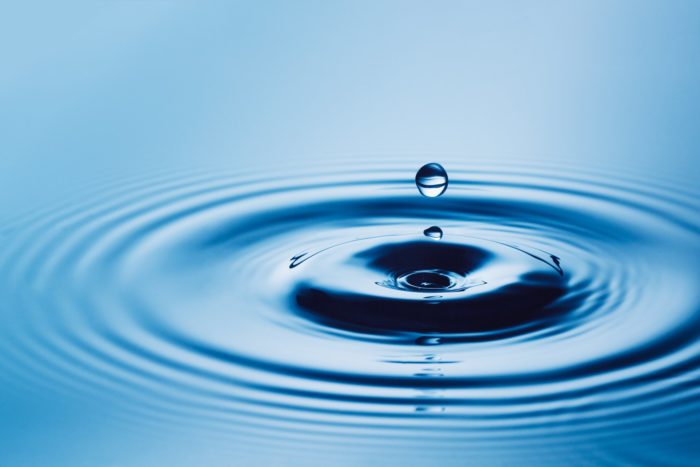

South West Water Launches Think Sink! Campaign
August 2019
South West Water is reminding food service establishments of their responsibilities regarding the proper disposal of FOG and food waste. In the upcoming months, SWW will be visiting restaurants, cafes, fast food chains and hotels to provide advice on correct waste disposal and the simple changes they can make to help ‘stop the block’ in the region.
Every year, thousands of litres of waste fat, cooking oil and grease are poured down our sinks and into our drainage systems. FOG and food waste can build up in pipes, causing blockages, flooding and an increase of vermin. In the worst cases, these fats combine with other non-biodegradable materials, which can lead to the creation of fatbergs.
Parts of the South West, including Devon, Cornwall & Plymouth have a long history of sewer blockages. Each year South West Water has to deal with over 8000 blocked sewers across the region, which costs £4.5 million to resolve. Overall, SWW spend £35million a year to maintain and upgrade the sewerage network. And it’s not just money wasted – but time too. Earlier this year, workers spent eight weeks to break up a 64m fatberg in Sidmouth.
And it’s not only food service establishments that can help to keep our sewers FOG-free. You can ensure to do your part for the Think Sink! Campaign at home by:
- Scraping leftover food and fat off your plates into the bin or food waste recycling
- Wipe plates and pans with kitchen roll to remove any grease before washing them in the sink or dishwasher.
- Let hot cooking fats from frying pans and roasting trays cool and solidify before putting them in the bin.
'Love Water' Campaign Launched To Urge Brits To Save Water Supplies
August 2019
The British public are being urged to help the country protect water resources for future generations as part of a major campaign launched by more than 40 environmental groups, charities and water companies. With water resources expected to become increasingly scarce in the next few decades, the ‘Love Water’ campaign aims to encourage both businesses and the public to do more to save water and curb pollution.
The combination of the UK’s rising population and a changing climate is causing extreme weather events including droughts and heatwaves, is putting pressure on our country’s water resources. The UK is facing hotter, drier summers and therefore an increased risk of water shortages. The UK already has less available water than most other European countries, yet, the average UK resident still uses 150 litres of water every day. This is 50% higher than in other parts of Europe, where residents use less than 100 litres a day.
The ‘Love Water’ campaign, which is led by major bodies including the Environment Agency, Water UK and Ofwat, aims to raise awareness of the importance of water and the role everyone plays in protecting it. The campaign hopes to encourage responsible use of water by designing water-saving projects, help people understand how to limit water pollution and feature events and initiatives to clean up our beaches and rivers.
By raising awareness of small changes all people can make, we can achieve a big difference.
- Currently, the UK water industry spends £100 million each year on clearing sewer blockages. By avoiding putting things we shouldn’t such as wet wipes, sanitary products and FOG down our sinks and toilets, we can prevent blockages and pollution of our rivers and oceans. One litre of oil poured down the sink can pollute one million litres of water!
- Research by Keep Britain Tidy shows that one in four people admit to littering. In 2018, Surfers Against Sewage removed almost 66 tonnes of litter from beaches across the county.
- If everyone in the UK turned off the tap when brushing their teeth, it would save 1,584,000,000 litres a day.

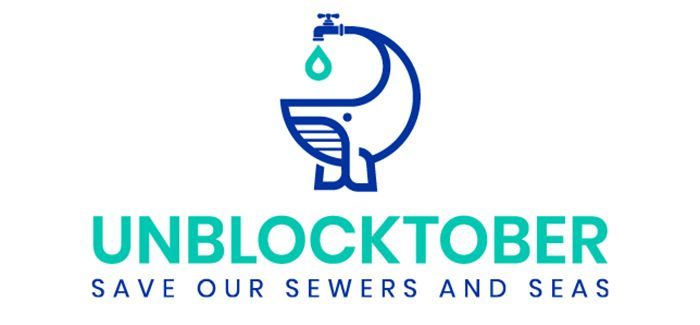
Unblocktober - Everything You Need To Know
July 2019
Unblocktober is the world’s first month-long national awareness campaign to improve the health of our drains, sewers, watercourses and seas. Britain’s sewer network is under ever-increasing pressure because of our irresponsible actions over the course of many decades.
For too long we have consistently flushed and poured things we shouldn’t into our drains. Fatbergs can block sewers, leading to foul waste flooding, pollution and disruption. Flushing items that contain hidden plastics, such as nappies, cotton buds and wet wipes can lead to plastic pollution in our rivers and oceans.
During October, you can easily take part in Unblocktober by committing to putting none of the following items down your drains or toilets:
- Cooking oil
- Fats
- Food (including crumbs)
- Wet wipes
- Sanitary products
- Nappies
- Condoms
- Cotton buds
- Bandages & plasters
- Razor blades
- Dental floss
Only the three P’s should go into your drainage system – Pee, Poo and toilet Paper! By making small changes to the way you dispose of certain everyday items, you can help make big changes to the environment. If you can change your habits for this month long period, you can change your habits for life.
To take part, sign up now at www.unblocktober.org.
Sewer Work - India's Deadliest Job
July 2019
Data shows that between 2008 and January 2018, 573 sewer workers died in India while working or from job related health issues. And that number isn’t improving. Since the beginning of 2017, at least one manual Indian sewer worker has died every 5 days.
But why is this number so high?
Sewerage work is mostly undertaken by the Valmiki community, who are forced to carry out cleaning and sanitation works without safety equipment or correct PPE (Personal protective equipment). Workers are made to enter sewers with nothing but a safety belt with which they can be pulled free if they become asphyxiated by the poisonous gases. Many suffer eye problems, as well as respiratory and skin diseases, but continue their jobs in the hope of earning better salaries. Despite protests for better protective equipment, health and safety training and a better working environment, workers continue to die regularly.
In June 2019, seven people died whilst cleaning a hotel sewer in western India when they fell unconscious and died after inhaling toxic fumes. Four sewer workers entered the septic tank to undertake cleaning works for the hotel. When they failed to return, three members of staff at the hotel went to help, but they too fell unconscious and died due to the high pressure of gas. It took local emergency services over three-hours to recover the bodies.
In Britain, utilities industries including gas, electricity, sewerage and waste has seen a total of 43 fatal events over the past five years. On a longer-term basis, things look much safer than in the past decades, yet this number could still be improved upon. In all countries, correct health and safety training, the use of accurate equipment and protective clothing are essential in ensuring sewerage workers remain safe and to prevent the risk of accidents within the industry.
You can read more about the problems India’s sewer workers face here.
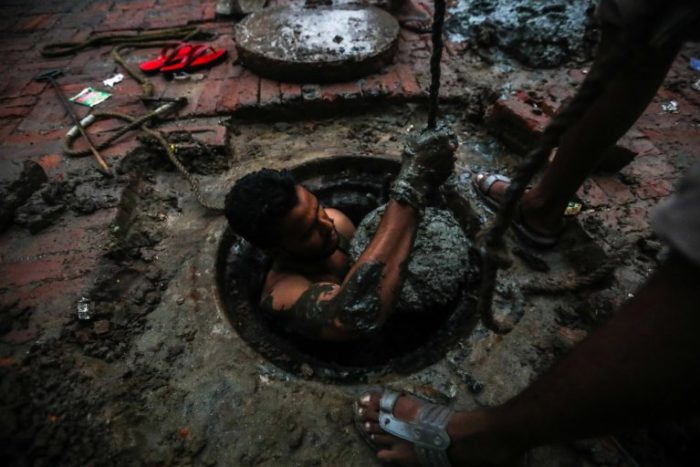

World Population Day - How is population growth affecting our sewer systems?
July 2019
World population day aims to inform people about the consequences related to population growth and to raise awareness about the possible solutions.
Today, China remains the most populous country in the world, with 1.4 billion inhabitants. That’s 18.4% of the Earth’s entire population in just one country. India’s following closely behind with a population of 1.3 billion inhabitants, followed by the United States and Indonesia.
As a planet, we face many consequences due to the ever-growing human population – habitat loss, the loss of natural resources and global warming. But how is population growth affecting our sewer systems?
The Earth’s warming atmosphere holds more water, which in turn causes more rain. This, in conjunction with the increase of impermeable surfaces, due to rapid urbanisation to keep up with the growing population, guarantees that surface water flooding is likely to become a bigger issue as our drainage systems won’t be able to cope with the excess water load.
What can we do to prevent this flooding?
Sustainable drainage systems are a sequence of water management practices that aim to closely imitate natural drainage processes. After intercepting excess surface water, SuDS store it temporarily so that it has time to infiltrate into the ground, evaporate or be discharged safely into a nearby watercourse so that it can be reused.
Sustainable drainage systems protect against flood risk by controlling the flow and quantity of surface water runoff to prevent flooding and pollution of the sewer network.
SuDS take the pressure off our overloaded sewers by stopping excess water from entering the network and being processed unnecessarily. We can then think of sustainable ways to reuse the captured water for example to our clean cars or water our gardens, which would help in water-stressed areas around the UK.
Ensuring we minimise the effects of climate change can also help us to avoid major flooding incidents. Even simple things like buying organic, local produce, using public transport and recycling can help to make a difference.
Plastic Free July - Be The Solution To Plastic Pollution
July 2019
Every day approximately 8 million pieces of plastic find their way into our oceans, and that number is set to treble in the next 10 years. This plastic kills over 100,000 marine mammals and turtles and 1 million sea birds every year as well as causing major damage to our environment.
Plastic pollution can now be found on every beach in the world, even on uninhabited islands. Scientists have also recently discovered micro-plastics embedded deep in the Arctic ice. And it’s not only the environment that is affected. Studies show the average person eats 70,000 micro-plastics each year, which may badly effect our health, leading to infertility or an increased risk of cancer.
But which common, single-use plastics are the most damaging?
Single Use Plastics – The Frightening Four:
Plastic Bottles
Over 150 plastic bottles litter each mile of UK beaches. A plastic bottle can last for 450 years in the marine environment, slowly fragmenting into smaller and smaller pieces which eventually end up microscopic but never truly go away. This means that every piece of plastic that has ever been produced is still with us, in some form.
Plastic Bags
Every second, 160000 plastic bags are used around the world. On average each of those plastic bags is only used for 12 minutes, yet it could take 100 – 300 years to fragment.
Plastic Straws & Cotton Buds
Plastic straws take up to 200 years to decompose and they can’t be recycled in most places. Thankfully, many companies such as Mcdonalds have now put bans on plastic straws and no longer sell them to the public. Cotton buds alone contribute to over 75000 blockages in the UK’s sewer systems each year and when they aren’t blocking our sewers, they end up in our waterways.
Wet Wipes
In 2017, Water UK found that wet wipes made up more than 90% of material causing sewer blockages. Many wet wipes now advertise themselves as biodegradable or compostable, however this doesn’t necessarily mean they can be flushed.
What can you do to fight plastic pollution?
The best way to reduce plastic pollution is to simple say no to single use plastics.
Spend a little extra money this week by buying yourself a reusable water bottle, tote bag and metal straws. You’ll actually be saving money in the long run as you can refill with tap water for free and won’t have to pay 5p each time you go shopping.
From April 2020, the Government are banning single-use plastic straws, cotton buds and drinks stirrers. You can now easily buy metal or biodegradable cardboard versions of these products, just take the time to look around for them.
If just one person used a tote or recycled bag over their lifetime, they would be removing 22000 plastic bags from the environment, and it would save you a hell of a lot of 5ps.
A cheap and eco-friendly alternative to disposable wipes are flannels, which can be washed and reused for years. And as a country we’ll be saving money that would have been spent removing fatbergs and clearing blockages.
Here at Peter Duffy Ltd, we have supplied all staff members with reusable water bottles to ensure we limit the use of single use plastic around the office. And don’t worry about when you’re not at home or work, there are now over 20,000 free refill stations around the UK, making it easier than ever to fill a reusable bottle.
Choose to refuse this July – go plastic free!

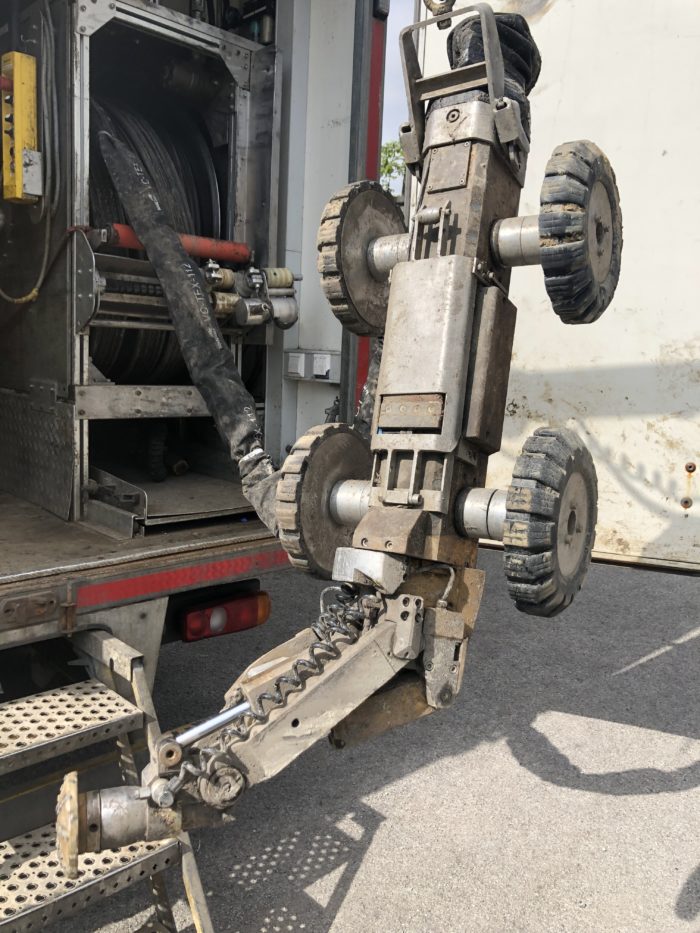
Robotic Cutter Range
June 2019
At DrainsAid we supply a range of robotic cutters which can each be used for individual purposes, including to re-open lateral connections, as well as cutting away or removing obstructions, such as root ingress, within a pipe. By using robotic cutters to clear a pipeline, you avoid the need for costly excavations.
Our range of robots can be used on pipelines ranging from 50mm – 800mm in diameter. Robots are controlled and operated from the comfort of our DrainsAid vans and can travel up to 90m away from the access manhole.
Our robots vary in power and skill set to accommodate for a range of pipelines and uses. For example, the Hachler HF 200 is an extremely powerful robot with the ability to effectively open up over 50 laterals a day. This particular robot is even powerful enough to cut and remove concrete or cement from within a pipeline, which frequently gets into drains during construction works. Whereas the Hachler CL80 and CL50 can negotiate bends of up to 90 degrees and can climb up vertical pipes.
Root Ingress
Tree root ingress is one of the most common causes of drainage blockages, which if left, can lead to joint displacement and in severe cases full drain collapse. Because roots naturally seek a route to a water source, they often will grow in the joints of the drain pipe. Eventually over time, the roots will begin to fill the inner pipeline, reducing the cross-sectional flow and creating blockages in the pipe.
Using robotic cutters to remove root ingress saves time, disruption and money, as the pipe can be cleared and surveyed ready for repairs, without the need for excavation.
At DrainsAid we use a combination of our advanced robotic cutters and non-invasive jetting equipment to ensure all roots and obstructions are cleared. To repair the damage caused by root ingress, we provide a number of methods;
- Individual patch repairs to rehabilitate isolated sections of a pipeline
- CIPP Lining can be used to repair a full length of pipeline
- Excavation and replacement for pipelines that are beyond repair.
Following the use of a CIPP liner or patch repair, robotic cutters can be used to accurately and quickly reopen lateral connections within the pipeline. For more information about the individual skills and uses of each of our robots, see our robotic cutters page.
International Women in Engineering Day - Transforming the Future
June 2019
Each year on June 23rd, we celebrate the inspirational women who are excelling within the engineering industry, with hopes to encourage the next generation of female engineers. And this year is extra special, as it marks the 100th anniversary of the Women’s Engineering Society (WES).
In 2018, only 12% of the UK’s engineering workers were female. That’s the lowest percentage in Europe, with countries like Latvia, Bulgaria and Cyprus leading the way with nearly 30%.In light of this low figure, much work has been undertaken by organisations and businesses alike to support an increase in the number of women working within engineering and related industries.
There are now significant opportunities for girls should they choose careers in STEM fields – science, technology, engineering and mathematics. However, even in more gender-neutral counties like Sweden, female students are still more inclined to study HEED subjects, with aims of Health, Education and Domestic based careers.
Recent studies indicate that companies are 15% more likely to perform better if they have a diverse workforce. Diversity is also considered a key for innovation – by encouraging different perspectives, increasing idea generation and driving improvement. Awareness days like today are vital in encouraging young women to choose a career within the engineering industry and to highlight that companies like us want to invite more women into our workforce.
Here at Peter Duffy Ltd, we are openly encouraging women to choose a career within the engineering industry. In July, we have 5 students from Outwood Grange Academy joining us for work experience – and we’re happy to see a mix of boys and girls.
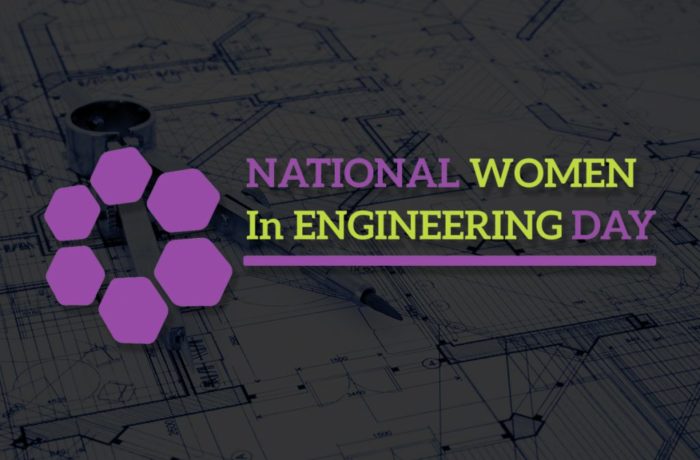
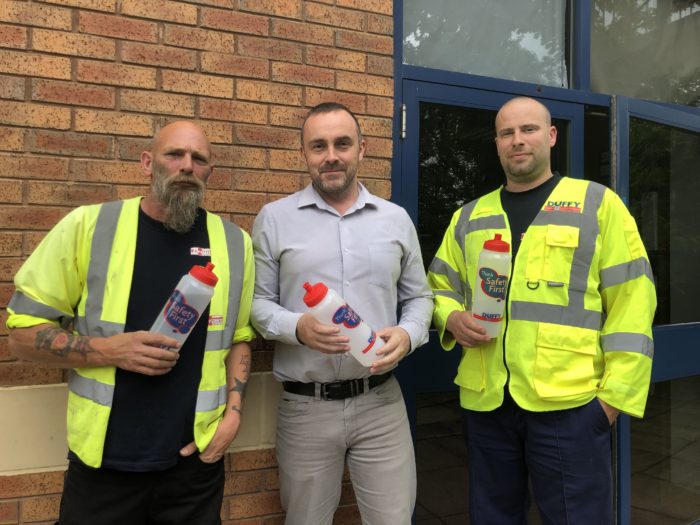
Ditch Single-Use Plastic and Join the Refill Revolution
June 2019
It’s time to end plastic pollution. Switch from single-use plastic to reusable water bottles this National Refill Day.
Over the last 15 years, the consumption of bottled water has more than doubled in the UK. Yet, the UK has some of the highest quality drinking water in the world.
There are now over 20,000 free refill stations around the UK, including popular spots such as Starbucks, John Lewis and Network Rail. Yet, only a third of people (36%) own and regularly use a reusable water bottle.
Each year 7.7 billion plastic water bottles are used worldwide. Only half of these are recycled. Many are discarded, and end up polluting our rivers and oceans. Staggeringly if just 1 in 10 Brits Refilled just once a week, we’d save around 340 million plastic bottles a year.
National refill day launched for the first time last year to encourage people to switch from single-use plastic water bottles to reusable alternatives to benefit the environment. The project also encourages shops and businesses to offer free tap water for refills.
Single-use plastic bottles are expensive to produce, use up valuable natural resources to make and transport, and create mountains of waste once they’ve been used and discarded. So far, recycling does not appear to be adequately dealing with the problem, as it’s estimated that only around half of the 38.5 million plastic bottles used in the UK every day are recycled, with around 16 million ending up in landfill, being burnt, or entering the environment and waterways.
The Refill campaign works out cheaper than buying single-use plastic bottles. A half-litre bottle of still water typically costs around 80p – £2, compared to a twelfth of a penny for the equivalent volume of tap water.
Here at Peter Duffy Limited, we’ve supplied all our employees with their own reusable water bottle, and take extra measures around the office to avoid using single-use plastics.
How To Unblock Your Bath Drain - International Bath Day
June 2019
Ready your scented soaps, bubble bath and rubber ducks – it’s International Bath Day!
Legend has it that while taking a bath on June 14th, Greek mathematician Archimedes, discovered that an object’s volume could be accurately measured by being submerged in water! Unable to contain his excitement over this discovery, Archimedes leapt out of the bathtub yelling “Eureka, Eureka!” as he ran through the streets of Syracuse in Greece. Nowadays, we celebrate this great discovery each year on this date.
With the majority of the population now choosing to shower, we often forget about the relaxing hour we could spend taking a long soak in the tub. Baths not only help release tension, they’re also good for our skin and can even help us sleep better!
Unfortunately, a blocked bath drain is a common problem in many households. If your bath is taking a long time to drain or isn’t draining at all, it will require fixing. Luckily, we’re sharing our simple unblocking methods with you.
DrainsAid Top Tips to unblock your bath drain:
- Clear out the blockage.
The first step is to see if you can spot what’s causing the blockage, by lifting of unscrewing the chrome cover, or pulling the plug out. The culprit is usually a build-up of hair and soap scum – so if you can reach this, simply pull it out. Disgusting? Yes, it can be. But it only takes seconds and it’ll save you spending money on a plumber. - Use a Plunger
The plunger is the next obvious step to clear a blocked drain. You’ll need a ‘cup’ type plunger for clearing a bath, sink or shower blockage. Ensure there’s enough water in the tub to keep the plunger cup submerged, but not too much that you’ll soak the room in water. Plunge with a vertical up-and-down action, keeping the handle straight and vertical for 15-30 seconds. If it’s still blocked after a first attempt, repeat the process.
- Snaking a drain
A ‘snake’ or auger, is a long, flexible steel cable wound on a handle, which you ca buy for around £20. Feed the snake down the overflow opening – don’t worry you may hit some resistance as you go past the trap, but keep feeding and turning the rod. Keeping feeding and turning the rod to break the clog or attempt to hood it, allowing you to pull it out. - Professional helpIf these methods don’t work, it may be time to call for help. DrainsAid offer emergency services for domestic and commercial clients. If you require assistance, ring us on 08000180123 or us our online contact form.


World Environment Day 2019 - Beating Air Pollution
June 2019
“The greatest threat to our environment is the belief that someone else will save it.”
This World Environment Day, the main topic to discuss is air pollution and how we, as a planet, can reduce dangerous emissions in the atmosphere. Here’s the current facts about the pollution we produce raising livestock, burning waste, and simply completing our everyday routines.
Transport
The global transport sector accounts for 1/4 of all energy-related carbon dioxide emissions. Air pollution emissions caused by transport have been linked to nearly 400,000 premature deaths around the world. Almost half of all deaths by air pollution from transport are caused by diesel emissions, while those living closest to major traffic arteries are up to 12 times more likely to be diagnosed with dementia.
Reducing vehicle emissions is an important intervention to improve air quality, especially in urban areas. Policies and standards that require the use of cleaner fuels and advanced vehicle emissions standards can reduce vehicle emissions by 90 percent or more. Or simply changing the way we choose to travel can help. Try riding your bike to work or catching public transport.
Household
The main source of household air pollution is the indoor burning of fossil fuels, wood and other biomass-based fuels to cook, heat and light homes. Around 3.8 million premature deaths are caused by indoor air pollution each year, the vast majority of them in the developing world.
97 countries have increased the percentage of households that have access to cleaner burning fuels to over 85 percent. However, 3 billion people worldwide still continue to use solid fuels and open fires for cooking, heating, and lighting. The adoption of cleaner, modern stoves and fuels can reduce the risks of illness and save lives.
Waste
Approximately 40% of Global waste is openly burned which releases harmful dioxins, methane, and fine particulate matter like black carbon into the atmosphere. Open burning of agricultural and municipal waste is still practised in 166 out of 193 countries.
Improving the collection, separation, and disposal of solid waste reduces the amount of waste that is burned or landfilled. Separating organic waste and turning it into compost or bioenergy improves soil fertility and provides an alternative energy source. Reducing the estimated one-third of all food that is lost or wasted can also improve air quality.
Agriculture
The major sources of air pollution from agriculture include livestock, which produces methane and ammonia and the burning of agricultural waste. Methane emissions contribute to the formation of ground-level ozone, which causes asthma and other respiratory illnesses. Around 24% of all greenhouse gases emitted worldwide come from agriculture, forestry and other land-use.
There are many ways to reduce air pollution from agriculture. People can move to a plant-based diet and/or reduce food waste, while farmers can reduce methane from livestock by improving grazing and grassland management.
Industry
In many countries, generating our power is a leading source of air pollution. Coal-burning power plants are a major contributor, while diesel generators are a growing concern in off-grid areas. Industrial processes and solvent use, in the chemical and mining industries, also add to pollution.
Policies and programmes aimed at increasing energy efficiency and production from renewable sources have a direct impact on a country’s air quality. At the moment, 82/193 countries have incentives that promote investment in renewable energy production, cleaner production, energy efficiency and pollution control. This number needs to keep rising.
Easy ways we can help to reduce pollution:
- Conserve energy – at home, at work, EVERYWHERE – that means turning off what you aren’t using!
- Carpool, use public transportation, bike, or walk whenever possible.
- Use natural, environmentally safe paints and cleaning products.
- Compost leaves and yard waste.
- Use gas logs instead of wood.
- Plant trees.
- RECYCLE!
- Eat local, organic produce and less meat.
- Consume less and choose sustainable products.
- Stop smoking.
- Conserve water.
Signs Your Drain is Blocked
May 2019
Living with a blocked drain in your property can be an unsettling experience. The earlier you find the blockage, the easier it should be to remove. Luckily, we know some early warning signs to watch out for.
- Sulphurous smell indicate trapped/rotting elements
- Slow draining sinks/shower
- High rising sinks or toilets which may overflow
- Gurgling noises from drains, toilets or showers
Common drain blockages can usually be prevented through alternative waste disposal. By simply throwing everyday household waste in the rubbish bin, rather than flushing it down the toilet, or pouring it down the sink, can help you to avoid blockages.
However, some blockages, such as those caused by a collapsed drain may be unavoidable.
DrainsAid can use a CCTV camera survey to quickly identify the problem. By using a push rod, and jet washing with one of our powerful van r tanker units, we will be able to remove the blockage.
If you have a blocked drain and would like assistance in unblocking, please call us on 0800 0180123 or fill in the email contact form and one of our team will get back to you.
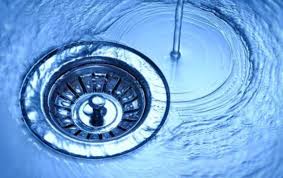

Environment Agency Begin UK Water Quality Testing For Summer
May 2019
Water quality testing has begun, so get your swimsuits ready for summer.
The Environment Agency has begun seasonal water quality testing at more than 400 popular swimming spots around the UK.
The company regularly test water quality at every official bathing location to ensure it is maintained to a high quality standard. This consistent monitoring supports ongoing work to maintain and improve water quality for the Government’s 25 year Environment Plan.
Last year, 97.9% of bathing waters in England met the Environment Agency’s high standards, a massive improvement on the early 1990s when only 28% of bathing waters were considered good.
Over the years, DrainsAid have undertaken numerous rehabilitation works, to prevent water pollution from effecting bathing spots around Britain.
In 2018, DrainsAid were tasked with the rehabilitation of a cast iron sewer at Hornsea beach which was suffering from severe erosion, allowing in/exfiltration. We installed a Hot CIPP Liner to repair damage, preventing leaks onto the beach and preserving the beach’s blue flag status.
More recently, DrainsAid have undertaken a spray-lining project at Scarborough beach outfall. Using the Hermes M-Coating Trolley we’ve successfully sealed the culvert ensuring water cannot escape, preventing pollution. Our efforts will assist in keeping the beach clean, preventing water pollution and protecting the environment.
You can check the water quality at beaches near you by visiting the Environment Agency’s website here.
Laser Profiling
May 2019
With aging urban drainage systems now requiring more and more maintenance, laser profiling has been developed to provide pipeline engineers and contractors with very accurate data to help in the rehabilitation of existing pipelines.
When carried out in conjunction with a CCTV Survey, Laser profiling can provide accurate measurements of the cross-section and frame to frame 3D image of the necessary pipe(s).
Our Laser Profiling Capabilities
DrainsAid’s iPEK Laser ShapeScanner is attached to a remote-controlled robotic crawler camera from our Rovian pipeline inspection system. The device can be used in pipes ranging from 150mm to 700mm in size.
In a circular pipe, the device projects a ring of laser light onto the internal wall as the camera traverses down the line, providing a cross-sectional profile.
This allows our WinCan software to build a digital pipe profile, allowing the determination of the pipe’s shape, capacity, ovality and water levels, as well as the detection of any deformations. The data can be viewed in real-time on screens inside our iPEK Rovian Inspection Truck, but is also recorded for future reference. One of our specialist team will interpret the collected data to create a range of reports, including data tables and graphs.
Laser profiling has the capabilities to detect up to 16 million measurements an hour and is accurate to within 1mm. The system is ideal for pre and post inspection of sewers in need of rehabilitation.
The use of PVC pipes is much more commonplace in this day and age, often being used in place of clay and concrete pipes due to the reduced cost. However, they can be more susceptible to warping and deformation which will have a negative effect on the structural integrity of the pipes. By conducting laser profiling surveys, we can find deformations, and prevent further deterioration.
Laser profiling may be of use to you if you believe you may require rehabilitation of a drainage or sewer network. The precise detail of the data enables us to choose the best rehabilitation method for the line in question.
If you require any further information about the Laser ShapeScanner, please email us at service@drainsaid.com or ring us on 08000180123.

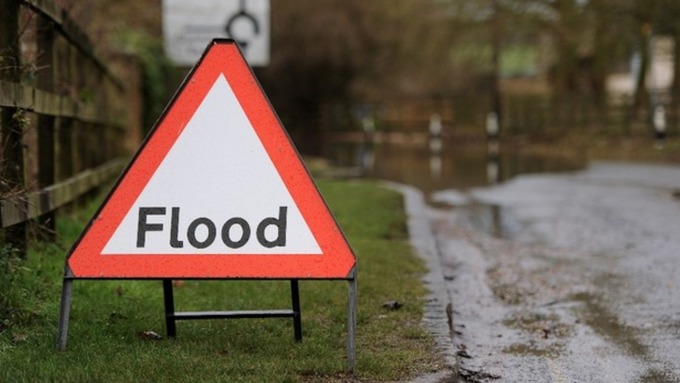
Climate Change - The Effect On Our Sewer Systems
April 2019
At a time when the UK climate is set to become even more unpredictable and the resilience of infrastructure is a principal concern for the government and regulators, sustainable drainage systems have a vital role to play. SuDS are required now more than ever, to prevent flooding, ease the burden on sewers, and protect the environment.
The Earth’s warming atmosphere holds more water, which in turn causes more rain. This, in conjunction with the increase of impermeable surfaces, due to the growing population and urbanisation, guarantees that surface water flooding is likely to become a bigger issue.
Now is the time to develop our drainage infrastructure to adapt to the pressures of climate change and likelihood of more frequent and intense flooding. We can do this by designing drainage systems to ensure that water is discharged in a controlled way, without damaging the environment.
But can stakeholders, such as local authorities, water utilities, contractors and even the public, collaborate together to effectively implement sustainable drainage systems?
What are SuDS?
Sustainable drainage systems are a sequence of water management practices that aim to closely imitate natural drainage processes. After intercepting excess surface water, SuDS store it temporarily so that it has time to infiltrate into the ground, evaporate or be discharged safely into a nearby watercourse so that it can be reused.
Why are they necessary?
Sustainable drainage systems protect against flood risk by controlling the flow and quantity of surface water runoff to prevent flooding and pollution of the sewer network.
SuDS take the pressure off our overloaded sewers by stopping excess water from entering the network and being processed unnecessarily. We can then think of sustainable ways to reuse the captured water for example to our clean cars or water our gardens, which would help in water-stressed areas around the UK.
The involvement of water companies and contractors like DrainsAid, along with technological improvements will be vital in the employment of sustainable drainage systems. Together we can ensure that sustainable drainage systems remain environmentally friendly, while developing their practicality to build them within a time frame and to budget.
Earth Day - Our Planet, Our Future
April 2019
Over recent years, man-made problems such as climate change, deforestation, trafficking and poaching, unsustainable agriculture and pollution have resulted in a dramatic reduction of plant and wildlife populations across the planet. Therefore, Earth Day’s theme for 2019 is “protect our species.”
We’re making a good start. UK emissions are down 43% compared to in 1990, but most of these reductions came from closing down coal power stations and cleaning up heavy industry. Reducing emissions from transport, agriculture and buildings promises to be more difficult, as it will require us to become more energy efficient and switch to renewable or low-carbon fuels.
A truly successful response to climate change will require us not only to change our technology, but to change our whole way of living. It’s time to raise awareness of the problem, and take individual actions.
So what can you do?
Here’s ten ways you can help our planet, every day.
- Turn the lights off
- Recycle
- Plant a tree
Trees not only absorb carbon dioxide and potentially harmful gasses from the atmosphere, they also release oxygen and provide habitats and food for wildlife. - Use both sides of the paper
- Eat less processed food
- Stop buying bottled water
Plastic bottles contribute to 14% of all rubbish in our rivers and oceans which kill one million birds and over 100,000 sea mammals every year. - Drive less, walk more
Staying off the road just two days a week can reduce greenhouse gas emissions by an average of 721 kilograms each year! - Turn off your appliances at night
- Use florescent bulbs
- Bring reusable shopping bags
Here’s to a sustainable future.


Plastic Pollution - What's really in our waterways?
April 2019
A recent study has revealed that drinks bottles have been found to be the most prevalent form of plastic litter in our waterways.
Plastic bottles now make up a massive 14% of all visible rubbish in European rivers and oceans. Food wrappers were next in line making up 12%, with cigarette butts, cotton buds and sanitary products such as wet wipes, following closely behind.
Plastic litter is dangerous to our environment and wildlife, as the material will not decompose on its own. It is estimated there are over 150 million tonnes of plastic in the world’s oceans and every year one million birds and over 100,000 sea mammals die from eating and getting tangled in plastic waste.
Currently, plastic use shows no sign of stopping, with the amount of plastic found in waterways being set to treble by 2025.
How can we prevent this from happening?
Recent efforts have shown that plastic use can be prevented. The report shows that plastic bags were found to make up only 1% of plastic rubbish, a significantly reduced amount compared to a few years ago. This is likely due to the 5p charge the government implemented, which is soon to increase to 10p in 2020.
Last year, the EU parliament approved plans to ban single-use plastics, with items such as straws and plastic cutlery being banned by 2021.
So it can be done. We can decrease our plastic use!
What can you do to help?
Individual consumer choices are equally as important to make a dynamic change.
In the UK, the average person uses 150 plastic water bottles a year, 6.9% of which end up littering the environment. Simply by buying and using a reusable water bottle, you can help to prevent plastic pollution.
Refill stations are becoming more popular, with companies like Morrisons, Starbucks and John Lewis now providing free tap water refills for those with a reusable bottle. Not only are you helping to stop plastic pollution from entering our rivers and seas, but you’ll save money with the added bonus of free refills! What’s not to like?
World Health Day - The Struggle For Sanitation
April 2019
What do you think is humanity’s greatest invention? The telephone? Aeroplanes? The internet? All things we’re now dependent on, but that we should (with a few meltdowns along the way) be able to live without. However there’s one invention that’s an everyday necessity. That saves millions of lives around the world, yet is still overlooked. Modern plumbing.
Hygienic sanitation and effective plumbing systems are crucial for public health, yet 2.3 billion people still have no access to these facilities.
I’m sure you’re thinking that a working toilet and sink are hardly impressive. But modern plumbing is the best solution to prevent the spread of disease in a country.
Without our plumbing systems, it wouldn’t be possible for us to live in cities and towns without suffering from diseases like dysentery, cholera or typhoid, which are contracted from drinking contaminated water. Contrary to what you might have thought, these diseases are not forgotten, olden-day illnesses. People in developing countries still suffer, and sadly die, from these diseases every day.
Since 1990, the number of people gaining access to improved sanitation has risen from 54% to 68%, however 2.3 billion people still don’t have access to a toilet or latrine. Of these, 892 million still defecate in the open, for example in street gutters, behind bushes or into open bodies of water.
According to the World Health Organisation, untreated sewage kills an estimated 1.4 million children each year. That’s one child every 20 seconds, more than AIDS, malaria and tuberculosis combined.
In the UK and other developed countries, factors such as healthcare and vaccinations do play a critical role in preventing the spread of diseases. However, providing adequate plumbing, sanitation and access to clean drinking water is undoubtedly the best way to protect people from water borne, or waste related diseases.
In 2010, the UN General Assembly recognised access to safe and clean drinking water and sanitation as a human right, and called for international efforts to help countries to provide safe, clean, accessible and affordable drinking water and sanitation.
Despite progress, the 2015 Millennium Development Goal target to halve the proportion of the population without access to improved sanitation facilities was missed by almost 700 million people.
Now the World Health Organisation are implementing a global action plan for ending preventable child deaths from pneumonia and diarrhoea by 2025, by promoting universal access to drinking water, sanitation, and hygiene in health care facilities and homes by 2030.
Find out what you can do to help this World Health Day here, and take a moment to appreciate our sanitation and plumbing systems. Without them, our lives would be very different.
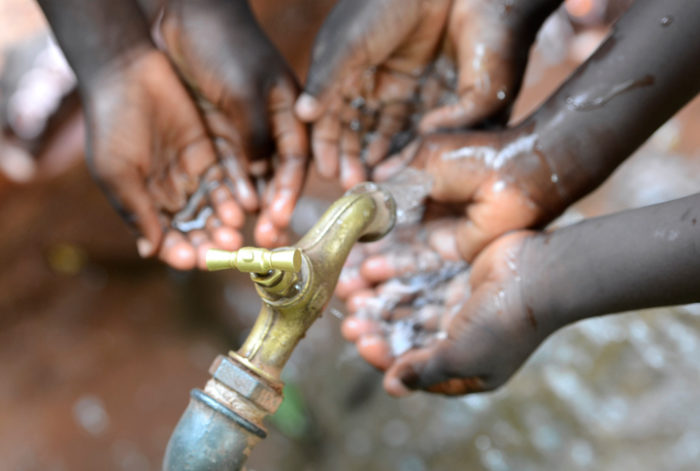

The Fight Against The Fatbergs
March 2019
If you’ve been living under a rock, or simply haven’t been paying attention to any sewer-related news, you might have missed that fatbergs are now a thing.
Although fatbergs aren’t a recent phenomenon, they have attracted increased attention in recent years as old sewerage systems are struggling to cope with the increased consumption and disposal of everyday products.
Just in case you’re unfamiliar with the term, a fatberg is a congealed mass of fat and waste that builds up when people dispose of items such as cooking oil, feminine hygiene products and nappies down the drains, instead of putting them in the rubbish bin.
Adding to the frequency of fatbergs is the increased usage of wet wipes. But can flushing wet wipes really cause much damage?
Wet wipe warning
Unlike normal toilet paper, wet wipes take a long time to break down in our drainage pipes due to their high plastic content. Up to 93% of sewer blockages are caused by non-flushable wipes.
Fatbergs are soon becoming an epidemic in the UK, with water companies estimating 300,000 sewer blockages each year are caused solely by wet wipes. This costs the country around £100million a year to unblock, and that’s without taking into consideration any expenses of negative environmental impacts, such as flooding. Think of all the better ways this money could be spent. There’s no question about it. Flushing wipes for convenience, isn’t worth it!
The fight against the fatbergs
Fortunately, manufacturers of wipes are now introducing the “fine to flush” symbol on their packaging, providing they pass Water UK’s stringent tests. The logo aims to reassure consumers that the products they use do not contain plastic and will break down in the sewer system instead of clogging up sewers and contributing to fatbergs. Researchers have also developed a new method to recycle the greasy sewer blockages into green fuel. By adding hydrogen peroxide and heating the fatter, the organic matter can be broke n down. Bacteria are then used to break down the fatty acids, producing methane, which can be used as fuel to generate electricity. While turning fatbergs into fuel is a potential way to make some good out of a bad situation, the best solution would be to prevent these fatbergs from forming in the first place. How? Stop pouring grease down the kitchen sink and only flush the three ‘p’s – pee, poo and (toilet) paper. If you’d like more information on what you can do in the event of discovering a blocked drain, call us today on 0800 0180123. Alternatively you can contact us here.
Make Every Drop Count This World Water Day
March 2019
Everybody, everywhere, should have access to clean water, but more than two billion people around the world are still living without this necessity.
Every day, at least 700 children under five die from diseases linked to unsafe water and poor sanitation.Around 159 million people have to collect their drinking water from unsanitary surface ponds, and one in four primary schools worldwide still have no drinking water service.
By 2030, 700 million people worldwide will have to relocate due to limited water supplies, and the UK won’t be far behind…
The UK’s Water Shortages
The Environment Agency’s chief executive, Sir James Bevan, has warned that England may run out of water in the next 25 years. Climate change and population growth are the main factors accelerating this growing crisis, which could see England short of water by 2040.
Water stress is already rated as serious in parts of the country, with environmental agencies now agreeing that unless we take immediate action to change things, we will not have enough water to supply our future needs.
But what can we, as individuals, do to help now?
- Fix leaking taps. A dripping tap can waste up to five gallons of water every day – that’s 2082 gallons a year.
- Opt for a dual-flush toilet. Using the reduced flush option uses four litres of water each time- that’s three times less than the 12 litres used every time you flush an old-style, single flush toilet.
- Shorten your showers. Reducing your daily shower from 10 to 4 minutes will save you more than 300 litres of water every week.
- Turn off the tap when brushing your teeth – this can save 6 litres of water per minute.
- Install a water butt to your drainpipe. A water butt can collect around 5000 litres a year, which can be used to water your plants, clean your car and wash your windows.
Together, we can end the water crisis.
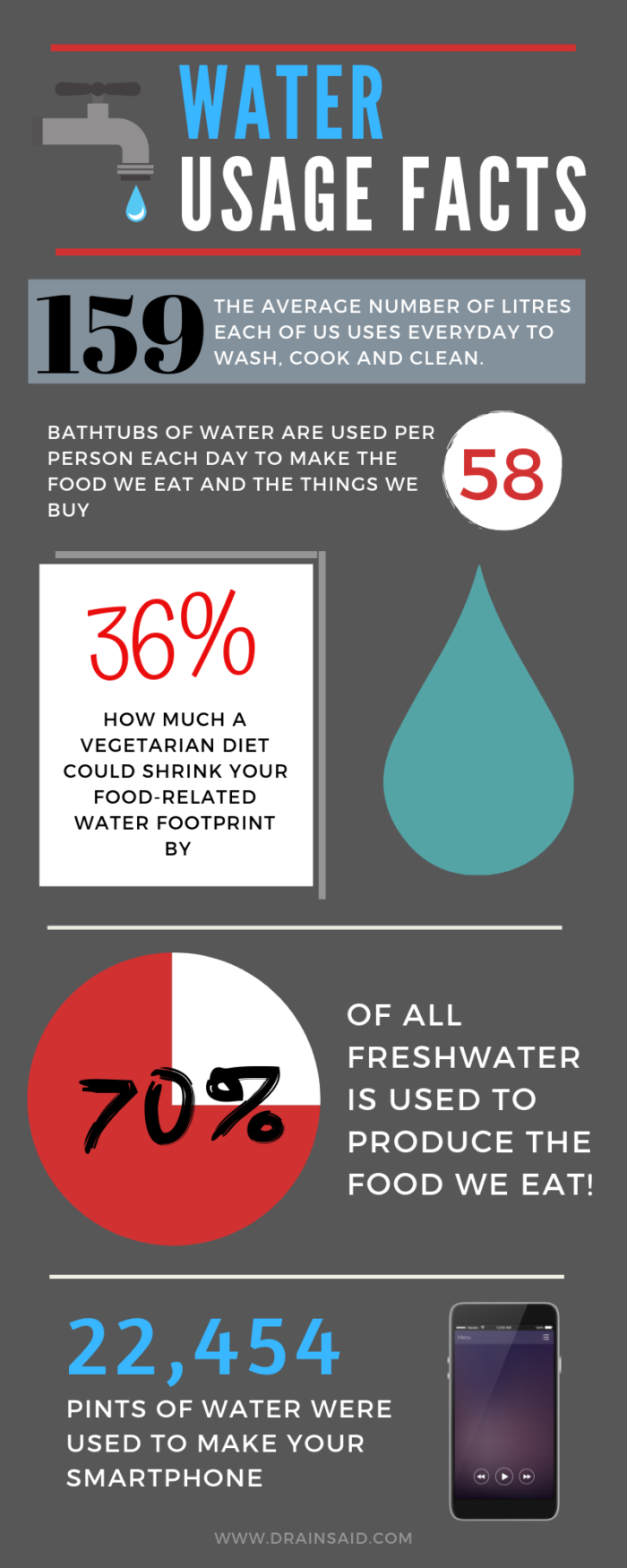

Drainage Problems in Your Property – The Warning Signs to Watch For
March 2019
By making yourself aware of the early signs of internal drainage problems, you’ll be able to take action to fix the problem quickly. Preventing further damage will save you time and money in the future.
But what are the warning signs to watch out for?
1) Slow drainage.
If your sink, bath, or shower begins draining slowly, this may indicate a possible obstruction. Your drain may be clogged or your septic tank may not be filtering wastewater fast enough. When the sewer line from a property becomes clogged, it can cause a backup in drains throughout the property.
2) Foul smells from drains.
Are the drains in your property emitting unpleasant odours? If your drain may need a repair. The smell usually means that the waste is not being removed and disposed of correctly, which can cause sewer gases to rise creating a strong and unpleasant smell.
3) Damp
A faulty drain pipe can leak in and around your property, maintaining a wet environment for damp and mould to thrive. This can be extremely damaging to the building and your health. If you have leaking drains it is essential you have them repaired or replaced.
4) Increase in water bill.
If your water bill begins to increase consistently, this could indicate a constant leak, which may then lead to damp or mould in your property.
5) Cracked walls or floors.
When drainage leaks occur from water lines or sewer lines, the moisture may migrate around or under a foundation. This may cause cracking to occur. If the leak has been going on over a long period of time, the damage could be greater.
6) Rust in water.
If the water from your taps looks brown or dirty when you turn them on in a morning, or after a period when they haven’t been used, this may be a sign of pipe decay.
7) Having to call a plumber regularly.
Reoccuring plumbing problems aren’t normal. Having to call a plumber should be an occasional necessity, not a regular occurrence. If you regularly have to call a plumber, this may be an indication there is a more serious issue within your drainage system. The signs of drainage problems are not always apparent to property owners. Sometimes a condition may only be confirmed through a professional inspection. Here at DrainsAid, we offer a range of CCTV investigations, including Push-Rod and SeeSnake surveys, which are well-suited for use within internal drainage systems.
Winter Drainage Issues
January 2019
By the very nature of drains, they have to take a lot of abuse on a day to day basis. This is the purpose they serve for us and our homes – to carry away our waste allowing us to live comfortably.
However, at certain times of year the system is under more strain than usual – winter is exactly one of those times. The cold weather and increase in precipitation can both put more stress on your drainage system, and in the worst of cases, cause it to fail.
How does winter affect my drains? As mentioned, there are two main ways in which winter can affect our drainage systems:
- Increased precipitation
This is not just in the form of rain, but in snow and fog as well. These all combine to create more water flowing through our drainage system. Surface water flowing into the sewers, and soaking through the ground, also puts strain on the pipes and junctions, exacerbating the chance of failure.
- Cold
It is one of the basic tenets of physics that as matter changes temperature it expands and contracts. If the ground that is saturated with water gets cold enough it will freeze. This will cause it to shift and change shape, and it will force the pipes that run through it to do the same. In some extreme circumstances the pipes in our homes can also freeze so water cannot flow through it.
So, what can you do?
One of the best things you can do to prepare your drains for winter applies to both commercial and domestic drains, and that is to simply keep them clean and flowing free. Inside your property you can keep things flowing with a regular dose of boiling water or drain cleaner.
However, the larger drains outside will likely need a CCTV inspection and, depending on the results, a professional clean and clearing. It may seem like a lot of expense, but the issues caused by a malfunctioning drain can cost a lot more to repair. As the old saying goes: prevention is better than the cure.
Drains Aid can help with drainage inspections and repairs – if you regularly suffer with your drains backing up and draining slowly, especially in winter time, then give us a call. Our team would be more than happy to come out and see how we can help. To find out more just call us on 0800 0180 123 or contact us here.


Drainage Surveys
December 2018
Whenever we speak to people outside of our industry they always assume that carrying out CCTV surveys in a drain must be a wholly unpleasant experience. And certainly, at times there can be aspects of that, however, in reality things are probably not what people imagine.
There is a lot more technology used while carrying out a survey of a drain than most people may realise. At DrainsAid we have varying pieces of technology for carrying out commercial drainage surveys. Each one has a distinct purpose and use so that we can cover any eventuality. Some of the methods we employ are listed below.
Mainline Crawler
A staple in our drainage inspection line-up, our mainline crawler offers a real time surveying package that increases the accuracy of the reporting within the pipelines whilst speeding up the process.
- Surveys can be compiled and finalised on site
- Client specific digitised paperwork
- Full pan and tilt with rotating camera
- 10x optical zoom including auto focus & LED lighting
- Survey up to 500 metres of unbroken pipework
- 360 degree viewing
- Option of having still photos
- CCTV survey up to 2.8 metres in diameter
Push Rod System The 100 metres fibreglass reinforced pushrod is able to inspect pipes ranging from 50mm to 225mm as well as negotiate multiple bends in very tight spaces with limited access. Most suited to domestic uses with low flow levels. The push rod system comes with full colour recording capabilities.
- 3 x Zoom function – live or recorded video
- Very lightweight
- High resolution TFT screen
- Internal memory size options – 16GB standard, expandable to 128GB
- SD/SDHC card and USB memory stick storage and transfer
Laser Profiling
The use of PVC pipes is much more commonplace in this day and age, often being used in place of clay and concrete pipes due to the reduced cost. However, they can be more susceptible to warping and deformation which will have a negative effect on the structural integrity of the pipes.
Our laser profiling technology uses a laser light to project a profile on to the surface of the pipe and feedback accurate data about the shape, capacity, pre and post lining assessments, ovality and deformation.
All this is done in conjunction with a normal CCTV survey and allows you to quantify information of the pipe which helps in analysis and decision making for refurbishment.
Laser profiling can detect up to 16 million measurements per hour, and can detect deformations greater than 1mm in pipes ranging from 150mm to over 1.2m in size. We also have the capability to undertake 500m of profiling from one access point.
DrainsAid provide CCTV surveys, as well as rehabilitation work, to both commercials and domestic properties all over the country. To find out more about CCTV surveys, or any of our services, simply call us on 0800 0180 123 or contact us here.
Thames Water to Turn Sewage to Drinking Water
November 2018
Current predictions show that in 25 years the population of London will have grown by a little over 2million people, which will ultimately leave a water shortfall of 351million litres a day. This comes at a time when the demands of people are ever increasing, against a background of natural resources decreasing due to climate change.
In a response to this, Thames Water want to open the country’s first effluent “reuse” plant at the Deephams Sewage Treatment Works near Edmonton, to make sewage waste clean enough to drink. The plant is estimated to cost £160million, and is in intended to be used in times of projected or actual draught. Thames Water have also revived plans scrapped by the government to construct a £1.7billion reservoir in Oxfordshire from which they would ship water down the Thames to ‘ensure taps keep flowing’. Along with this, the company currently has the UK’s only de-salination plant, which is located in Beckton. This plant turns 150million litres of seawater to drinking water a day during draughts. Along with this, the company is also looking to repair leakages amongst its 20,000 miles of drains in order to improve efficiency and minimise waste. The proposed treatment centre would treat 45million litres of effluent a day, through a 2-stage process.
- The first step would see the effluent pass through a “desalination membrane” to clean it.
- It would then be mixed with reservoir water, before being treated again and then pumped into the network.
Of course a spokesman from Thames Water emphasised: ‘We wouldn’t consider reuse if we didn’t think the water would be good enough.’ Drains Aid are one of the leading suppliers of drain and sewage rehabilitation services in the UK. To find out more about any of our services simply contact us here or call us on 0800 0180 123.


Types of CIPP Liner
October 2018
Drains-Aid are one the leading installers of CIPP Liners in the country. We have carried out dozens, if not hundreds of liner installations: we’d hate to calculate the total distance of liner we’ve installed. With this in mind, we would certainly consider ourselves to be experts in CIPP Liners. However, we understand that not everyone shares our extensive knowledge. Therefore, we wanted to write a short post about the various CIPP liners available, and when they might be used.
For those who don’t know, CIPP stands for Cured in Place Pipe. They are essentially an artificial pipe, typically made of some form of fibreglass or none woven polyester felt. This material is saturated with various types of resin, which, when cured sets rock hard and acts as a pipe within a pipe. Why Use CIPP Liner? The biggest advantage of CIPP liners are that they are a ‘trenchless’ technology. Meaning that if a sewer pipe needs repairing it does not need to excavated at great expense and inconvenience. CIPP Liners can simply be inserted down a manhole. Curing The biggest difference in CIPP Liners comes down to their curing method. This is the way that the resin is ‘activated’ and hardens, to turn it from fabric to functioning pipe.
- Hot water – in this process a further pipe is fed down the CIPP Liner and hot water is passed back and forth through it. The ambient heat that the hot water creates helps to set the epoxy.
- Steam – this is a very similar process to hot water, however due to the increased temperature it typically cures much quicker.
- UV – once in place, a specially made ‘UV train’ is fed through the pipe. The UV light then cures the epoxy. This technique is quickly becoming an industry favourite as it is quick and pollutant free. However, at the moment it is limited by the pipe diameter.
Brawoliner – This a revolutionary new product, of which Drains-Aid are one of the only authorised installers in the UK. Brawoliner was developed with smaller diameter pipes in mind. Because of this it has been developed to seamlessly go around multiples bends of up to 90 degree and can be cured by ambient temperature (but it cures quicker with hot water or steam). To find out more about our re-lining services simply call us on 0800 0180 123 or fill out this form.
How Tree Roots Can Damage Your Drains
October 2018
Most people have a natural appreciation for trees. In the city centre they help bring a touch of nature to our grey streets, as well as helping clean the air and in some cases offer us privacy. However, in the realm of drainage they are often a major source of problems.
Root ingress is a nation-wide issue, and is not something that is easily remedied. In its most simple terms, root ingress is the act of a tree root growing into a sewer pipe, which then has a detrimental effect on the normal flow of sewage and water.
However, root ingress can have several negative effects on a sewer system. So, in this post we would like to explore what they are, and what you can do about them. Over time, your sewage pipes can shift, or the old clay pipes can naturally corrode. If this happens then they will slowly start to leak water and waste. This in itself is an issue, as this leaking can cause pollution and be unsanitary.
If this leak takes place for long enough then tree roots, seeking out a good source of water, will start to grow closer to the leak, and eventually roots will grow through the gap into the pipe itself. Once roots have got into the pipe they will make any sort of leak worse, leading to further pollution. And, if left for long enough they will have a detrimental affect on the normal flow of water, creating a blockage which could in turn lead to waste backing up into your home or place of work.
So what can you do? Cutting the roots back will certainly allow for the free flowing of water, but is very much a bandage, not a cure, as the roots will ultimately grow back. Instead, root cutting ideally needs to be coupled with either patch repairs or drain re-lining.
Patch repairs will cover up the leaks, thus discouraging the roots from seeking further water and causing more damage. Re-lining will rehabilitate the drain as a whole, essentially adding a second skin, which should last anywhere up to 50 years, giving your drain and sewer a second life.
To find out how Drains Aid can help if you are suffering from root ingress, or offer an initial diagnoses through a CCTV survey, just call us on 0800 0180123 or contact us here.

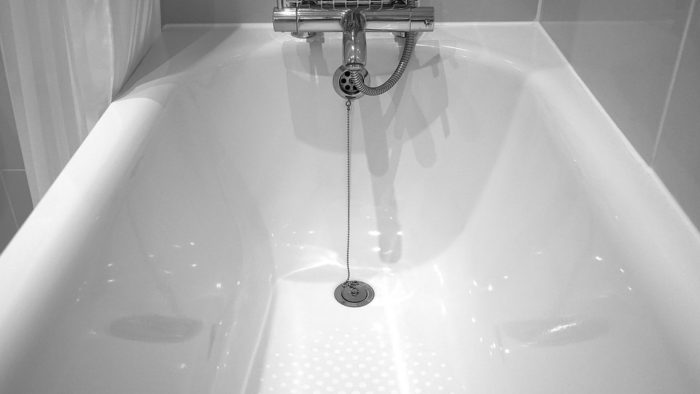
Bath Not Draining Quick Enough? This is Why!
July 2018
We’ve all suffered from it; standing in the shower as the water slowly fills and starts to climb up your legs. The soapy warm water is simply not draining away quickly enough, and even when you’re long out of the shower the water filters down far too slowly, being quite a nuisance.
But what is causing this to happen?
There are many reasons why your bath and shower water may be draining away slowly, but as drainage experts in Wakefield we have found there is usually a couple of likely culprits. Hair – unfortunately the most unpleasant is the most common. The hair that comes off us when we shower has got to go somewhere, and more often than not it ends up down the drain. Over time this builds and builds until there is a distinctly unpleasant hairball clogging up the drains. Soap – if you use soap, as opposed to shower gel or cream, then over time this can clump and gather in the drain and form a hard mass. This mass then grows and attracts more soap and the cycle continues until the drain is blocked. Unfortunately, this goes hand in hand with the above, with hair and soap clinging to each other and causing each other to grow. So, what can you do about it? Thankfully, if the two items mentioned above are the culprits then the remedy is simple, if slightly unpleasant. To shift the soap you can pour boiling water down the drain which should essentially melt the soap Hair is a slightly different story that may require you to don the marigolds. Simply reach as far down the drain as you can (using implements if necessary) and try and pull the hair out. Or you could go the other way, and using something like a drainage rod, try and force the clump further down into the main sewer, thus clearing the blockage that way. If you have tried both these methods and are still struggling then it might be time to call in the professionals. DrainsAid have years of experience in unblocking drains in Wakefield, and much further afield. We have worked with both commercial and domestic clients and can turn our hand to drainage jobs of any size – big or small. To find out more just give us a call on 0800 0180 123 or contact us here.
Blocked Drains to Blame for Flash Floods
July 2018
Following a series of flash floods in Northampton throughout the month of May, its been confirmed by officials that blocked drains are to partially to blame for the extensive flooding throughout the town.
An astonishing 16 drains were recorded as blocked, preventing the two-hour downpour from disappearing into sewers.
More than 70 homes were affected by the floods in the Far Cotton area of Northampton. Residents told the BBC many drains had been blocked for weeks and reported to Northamptonshire County Council.
Northamptonshire County Council, which is being run by government commissioners due to its financial problems, said a full investigation into the causes would be carried out.
The same area of the town (Far Cotton) was significantly impacted in the 1998 ‘Easter Floods’ when thousands of homes were damaged by the River Nene bursting its banks. Many commercial properties were affected by the floods, with local shops having to close due to water damage. Bin bags left out by locals were also seen floating in the water – a messy situation for residents and property owners.
One family with three young children said they are “seriously thinking about leaving” the area, as insurance rates are significantly high due to the town’s track record of flooding. “We know that that couldn’t have been predicted, it was a freak of nature, the volume of the rain that came down. It’s the same story as 20 years ago and people are scared to be in their own properties.” Blocked drains can mean trouble for locals.
Not only do blocked drains give off unpleasant odours, they also prevent rain water and sewage from passing through the water system efficiently – leading to tragic floods such as the Northampton events.
If you’d like more information on what you can do in the event of discovering a blocked drain, call us today on 0800 0180123. Alternatively, you can contact us here.

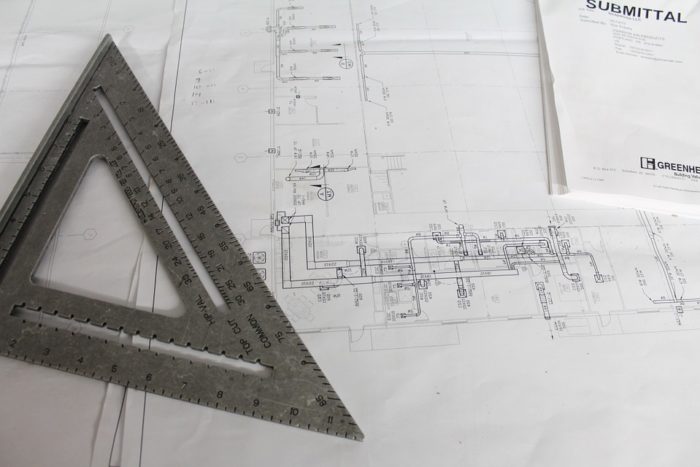
Partnership Between Two Giants Set to Improve UK Drainage Infrastructure
June 2018
The future for drainage and water treatment companies could see frameworks being set to encourage guidelines in improving the status of the UK’s wastewater infrastructure. In April of this year, design and engineering consultancy Atkins (a subsidiary of global infrastructural, energy and environment giants SNC-Lavalin) were chosen to team up with Water UK to make long-term advancements to the approaches of drainage and wastewater management schemes.
In May 2013, OfWat and the Environment Agency published the Drainage Strategy Framework; the partnership between Atkins and Water UK will see them build upon this framework, and the plans are to be released towards the back end of summer 2018.
Currently, water companies aren’t required to state a long-term scheme for their future plans, however the UK and Welsh government along with OfWat, have highlighted the necessity for there to be improvements to long-term drainage and wastewater planning.
Speaking on behalf of Atkins, Project Director Brian Arkell stated: “Population growth, new development, urban creep and climate change are all putting increasing pressure on our drainage systems. A strategic and joined-up long-term strategy will be an essential part of how the industry strengthens its drainage resilience for generations to come.”
It is hoped that the revised frameworks will improve the quality of services from wastewater companies, and ultimately improve the country’s drainage status. As a leading provider of drainage services in Wakefield, DrainsAid welcome any initiatives that are set to improve the practice of wastewater and sewage maintenance.
From our HQ in Lofthouse, Wakefield, we serve residential and industrial sites throughout Leeds, Harrogate, Huddersfield and more. If you would like to get in touch with us whether it is a blocked drain, or for full sewage reworks, you can contact us on 0800 0180123.
All About CCTV Surveys
June 2018
CCTV surveys can sound complex to those with no drainage experience. However, they’re not as daunting as they may sound and are quite simple to understand. CCTV surveys are used to investigate deep drains, to discover exactly what is causing drainage problems for the homeowner or council. The process is quite straightforward. Below is a talk-through of exactly what goes on when we carry out CCTV surveys, and what you can expect from hiring us to do so.
We begin by unloading a van load full of equipment, usually frightening the client with the number of tools we need to use; however, this is just standard procedure and is nothing to be apprehensive about. We use items such as waterproof cameras, access rods, crawlers and sonar units.
The first step we take is removing the manhole cover, which can let out quite the odour if the problem has been festering for some time. Common causes are tree roots ingress, dead animals, too much loo roll etc. nothing to worry about too much despite the unpleasant smell.
Our CCTV system is sent along the length of your drainage system, using rods and crawlers to record everything in sight so we can gather enough information to diagnose the issue.
Aside from rats and toilet paper, other causes of blocked drains include collapsed pipework – this is normally caused by aged pipework that has eroded and roots from nearby tree may have broken through. This creates a drop-in pipe-level at a connecting section which can cause a lip for waste to collect on and back up.
Once a diagnosis is clear, Drains Aid will then work out a solution, informing you exactly what needs to be done and allowing you access to the footage if needed.
We may need to return on a different day, depending on the severity of the problem. For more information or if you feel that you may need a CCTV survey, give us a call today on 0800 0180123 or contact us here.


No-Dig Live 2018
May 2018
This September, Drains Aid will be exhibiting at the popular No-Dig Live. Taking place on the 18th – 20th September, Drains Aid are excited to get involved in the 14th biennial trenchless technology exhibition and outdoor demonstrations.
The event will be held at the East of England Arena and Events Centre across three days in September. The facilities at the arena bring outdoor demonstrations closer to indoor exhibits, which was verbally appreciated by both visitors and exhibitors at their 2016 event.
The event highlights trenchless technology, a movement that is supported by the UK charity UKSTT who are involved greatly in the development and promotion of trenchless techniques.
Drains Aid are looking forward to getting involved with the event as trenchless technology provides many benefits for drainage alone. One of these benefits is that trenchless technology provides an easier approach to the fixing of pipes as it means that they can be repaired or replaced without having to carry out an excavation – a process which is expensive and time consuming for all involved.
The event offers a live, working environment and is the only forum in the UK in which manufacturers and suppliers can display and demonstrate products and services at an event focused solely on trenchless technology.
Drains Aid specialise in sewerage operations in around the Wakefield area, including dealing with blocked drains and damaged pipes. For more information on our services, give us a call on 0800 0180123 or contact us here.
How to Unclog Your Kitchen Sink
May 2018
It’s important when you have a home of your own to maintain it and keep everything in working order to avoid having to pay out large chunks of money on repairs.
However, drainage issues are always common, despite how often you take care of your kitchen. One of the most common problems we meet at Drains Aid is a blocked kitchen sink or drain. This is usually caused by debris slowly building in the drain pipes of the sink.
Blocked sinks can be extremely frustrating and inconvenient for a household, so we’ve put together 2 simple steps you can take to unclog your sink, by yourself!
- Boiling Water – Most sink blockages are due to a combination of grease, soap residue and tepid water that become trapped in the drain, right below the opening. If you have metal pipes, you can try to loosen the clog with boiling water. Pouring boiling water directly down the drain may dissolve the residue, especially if it consists of soap scum or grease. Hot tap water won’t do the trick—it has to be boiling water. If you have PVC Pipes, do not use this method.
- Plunger – The plunger that is best to use for clogged sinks is the cup plunger. Remove the basket strainer and fill the sink halfway full of water. Place the cup plunger over the drain opening, making sure it has a good, tight seal against the surface around the drain. Using quick, sharp plunges, pump up and down several times to attempt to clear the obstruction. Once cleared, let the tap run for several minutes.
If you find that neither of these methods work, it may be time to call a professional. It’s important you don’t take pipes apart yourself if you have no experience. The pipes may already be damaged and fiddling around with them could cause the problem to worsen. For more information on your blocked sinks, give us a call today on 0800 0180123 or contact us here.
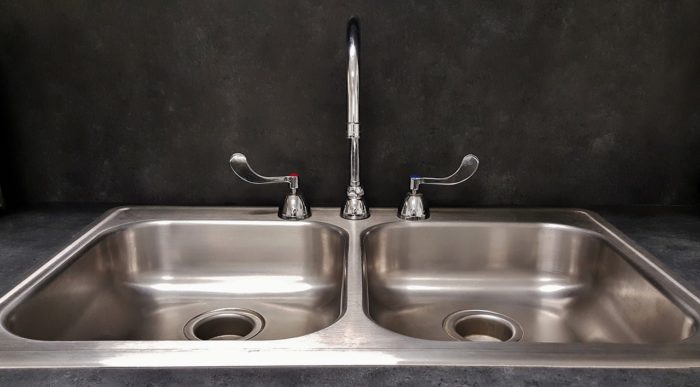

Signs That Your Drains are Damaged
May 2018
A damaged drain can lead to severe problems for your home. From blocked sinks, toilets and pipes – damaged drains can be incredibly inconvenient to your everyday life, not to mention the hygiene problems you may encounter.
There are a few signs to look out for if you’re beginning to suspect that you’re having issues.
- Poor drainage and/or sewage backing up
The first warning of damage is more often than not a decline in the operation of the drain. Slow drainage may indicate a blockage, but it can also signify a collapsed pipe. As well as this, sewage backing up may also be a warning sign.
- Damp and mould
Drainpipe damage may obstruct the movement of water, so it starts to flow into the terrain around the pipe itself. If the drain has collapsed beneath your home this may lead to signs of damp and mould on the floor or walls of the property – never ignore these symptoms!
- Cracks, subsidence and structural damage
In cases where the damaged pipe lies beneath a building’s structural points, it’s possible for cracks to appear in the building in areas such as floors or in the walls. This is only likely to happen if a collapsed drain has not been dealt with for a significant amount of time. This can be very costly to fix. Make sure that you have properly looked into the problem before choosing to simply repair the cracks themselves. If the underlying problem with the drains is not tackled, the cracks will return. A collapsed pipe can make the ground surrounding it begin to sink or subside, which is why it’s important to recognise the signs as soon as possible. If you’re experiencing any of the above symptoms, it may mean that you have a damaged drain. It’s important you take quick action to avoid the issue worsening and burning a hole in your wallet. Drains Aid specialise in commercial and domestic drainage. For more information, call us today on 0800 0180123 of contact us here.
Drainage Advice For Homeowners Moving Into A New Home
May 2018
Moving into a new home is touted as one of the most stressful stages of life. With it comes worries from necessities such as conveyancing, to teething issues like redecorating.
However, one issue that can get unnoticed is the standard of your drains. If overlooked, this can bring about a series of long term problems affecting the functionality of your home.
The previous tenants or owners may have left the piping system in a state where repairs are necessary; this is worth checking prior to moving in so that you can alert it to the attention of a professional before it becomes a long-term issue.
Redecorating internal and external areas of the house can also result in the need for drain maintenance. Removing and reinstalling toilet or bathtub fixtures, in addition to any debris or dirt that makes its way into the drains can potentially lead to blockages or inconsistencies.
In this instance, if the you or the team carrying out the work aren’t looking after the drains then additional repair or maintenance could be necessary.
Depending on your location, the Highways Agency, local council, and local water treatment provider are local for public drainage systems. It is down to the homeowner to take responsibility for the maintenance of their domestic drains.
In accordance with the 2011 Private Drains and Sewers regulations, the homeowner has to self-repair or maintain their domestic piping system or hire a professional to do it. This is the case for landlords too.
For situations where this occurs, Drains Aid respond to call outs for domestic drains throughout Yorkshire on a 24-hour basis. Based in Lofthouse, Wakefield, we also conduct commercial and industrial drain repairs. For more information regarding our services, you can contact us on 0800 0180123.


Blocked Drain Sparks Safety Concerns
April 2018
A blocked, flooded drain in a road in Watford has sparked concerns over the safety of pedestrians, this week. A drain, on the corner of Hatfield and St Albans Road, currently poses a threat to people.
The drain has become a slip hazard, says Councillor, Asif Khan, who represents Leggatt’s Ward.
Asif says he has reported the blockage to Hertfordshire County Council three times over the past six months, but they have failed to respond to his concerns.
There is now there is a nasty smell developing due to the festering of the problem. “I’m worried the blocked drain is a slip hazard for pedestrians to get through, especially with the unreliable weather conditions.”
Kevin Carrol, a divisional manager for a company that deals with highways maintenance in Hertfordshire – said the drain should be unblocked over the next three weeks. However, this may not soon enough.
Blocked drains, when left for lengthy periods of time can worsen and prove even more difficult to amend when the time comes. The company are aware of the drainage issues but are in no rush to fix it. They said that they visited the site on several occasions, including during their deep cleaning programme where a contractor has authority from the council to lift cars. “Regrettably, we were still unable to access the drains due to the volume of parked cars.”
They are now in the process of getting authorisation to suspend the use of the two parking bays. This will allow them access to the blockage, to carry out a detailed inspection. It is also important that residents cooperate with them during the process.
Drainage issues can be extremely inconvenient for your home or street. Leaving the problem too long without calling professionals can lead to a messy situation. If you’re experiencing issues with your drains, nip it in the bud today and give us a call on 0800 0180123 or contact us here.
Blocked Drains in Belfast Cost Around £800k a Year to Clear
March 2018
The cost of clearing built up drains in Belfast, Ireland has been revealed by NI Water this week and it’s a staggering £800,000.
New figures from the utility company show over the course of one year in the Belfast area there were 5,500 blockages all of which racked up this astonishing bill. The new information comes as part of the long-running nationwide ‘Bag it and Bin It’ campaign, which urges customers to avoid flushing inappropriate material down the toilet.
By doing so, they hope to minimise drain blockages and Fatbergs – which are caused by non-flushable items such as wet wipes, nappies and certain food substances like oil. NI Water’s Head of Wastewater, says that, “we have all seen the disgusting effects of an overflowing toilet in a home…
No one wants to see or smell it, but it happens regularly at a cost of millions each year.” In the past 10 years NI Water has spent more than £1.5bn investing in water and wastewater infrastructure.
Being a government-owned company, this means that the cost of clearing drains come out taxpayers’ pockets. The most common items of domestic waste which cause these issues are baby wipes, sanitary items and cotton buds. These items should never be flushed down the toilet or sink as they do not break down or dissolve, causing them to clump together, forming a Fatberg, which can be a big problem.
Recent research from Water UK has found 93% of the material causing issues in the country’s sewers are advertised as non-flushable. Only 1% of blockages were found to be made up of items which were designed to be flushed – like toilet paper. The moral of this story is to always avoid flushing items described as non-flushable down your toilet.
A blocked toilet can offend many of your senses, from sight to smell, it’s an unpleasant experience. If you’re experiencing issues with your toilet or sink, please don’t hesitate to call Drains Aid on 0800 0180123 or contact us here.

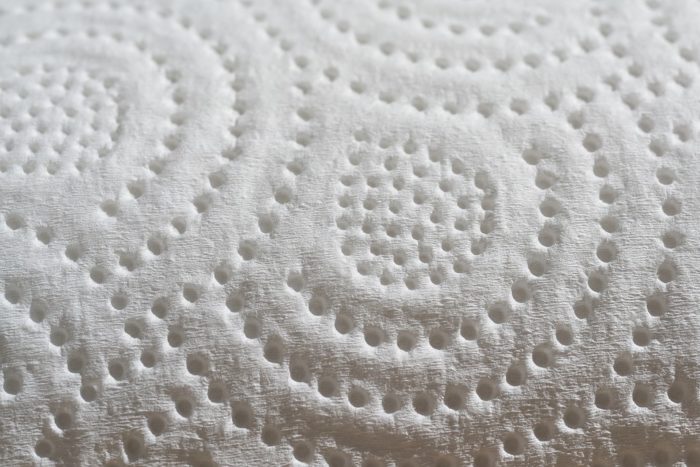
Yorkshire Water calls for wipe manufacturers to help with blockages
March 2018
Yorkshire Water is asking the manufacturers of wet wipe to do more to encourage customers not to flush used wipes down the drain. The company has reported being called to over 30,000 blockage incidents each year, with 40% of these case being as a result of wipes.
This is because they contain plastic which does not break down, causing sewer blockages throughout the county.
Indeed, this is a problem being experienced on a national scale at the moment. In December 2017 published research by the trade body Water UK found that 93% of the 54 sewer blockages they studied were caused by wipes.
The report also estimated that they were about 300,000 blockages in sewers each year, at a cost of £100 million to the country. As well as running a customer awareness campaign, which hopes to educate the public about the harm that flushing wipes down the toilet can cause, Yorkshire Water would also like the wipe industry to play more of a role in promoting their proper disposal.
Customer Service Manager, Tom Phillips has stated: “We would like wet wipe manufacturers to increase the prominence of the ‘no flushing’ symbol on their packaging and let their customers know that wipes can cause blockages.” It is hoped that this, along with other initiatives being put in place, will help Yorkshire Water to meet their target of decreasing the number of people who experience sewer problems by 70%.
DrainsAid provide preventative and reactive drain repair services throughout Yorkshire and the rest of the UK. Our experienced team of technicians work at both commercial and domestic properties and offer a range of services including blockage clearance, CCTV services and re-lining. For more information or to arrange a call out please get in touch on 0800 0180123.
DrainsAid to attend No-Dig Exhibition
March 2018
DrainsAid will be one of many leading businesses in the UK attending this years No-Dig exhibition. No-Dig Live 2018 is an exhibition that that will take place between 18th-20th September at the East of England Arena & Events Centre in Peterborough.
The 3-day event is the UK’s only exhibition dedicated to trenchless technology. It will feature indoor and outdoor product and service demonstrations, topical seminars and a wealth of networking opportunities. The event is not just an exhibition, but it is also a live and working environment where manufacturers and suppliers can display and demonstrate products at an event which is focused on trenchless technology.
As DrainsAid are a leading company in the UK and Yorkshire’s drainage industry, we are always looking too improve how we use drainage technology to work more efficiently. We will be one of hundreds of top manufacturers and contactors attending this year’s event, and we are looking forward to discussing new and innovate drainage solutions.


Fats that once blocked drains now being used for fuel
March 2018
Yorkshire Water has introduced an innovative new scheme in Bradford to try and reduce the amount of oil being poured down drains by residents. The ‘Fats to Fuel’ project was launched in a response to the high number of call-outs to unblock drains in the area.
It involves people storing their leftover oil rather than disposing of it down the sink, this is then collected on a four-weekly basis and taken away to be transformed into bio diesel.
As well as reduce the amount of oil being disposed of down the plug hole, the scheme is also hoping to educate local people. A build-up of fat within pipes is one of the main causes of blockages and can be because people do not realise that whilst oil is in liquid form in their kitchen, when it cools underground it can actually solidify, narrowing the width of the pipe and making it difficult for waste water to flow away.
A total of £20,000 has been spent on the initiative so far and the results look promising. In the last year and a half, there has only been one call out to a blocked drain in the area where it is being trialed – compared to 85 in a three year period previously. Duncan Woodhead, who works for Yorkshire Water believes the success is due to “the overwhelming support and enthusiasm from people living in the area. They have done a lot of the work by spreading the word and now we get people coming up to us on every collection asking for fat vats.”
DrainsAid offers both preventative and reactive drains services throughout Yorkshire and the UK. We help both commercial and household clients with all drain related issues and provide a 24-hour blockage clearance, spray lining and re-ling, CCTV surveys, cleansing and desilting. For more information or to book an appointment with one of our skilled technicians please call us on 0800 0180123.
How to clear a clogged shower drain
February 2018
With over 40 years of experience in sewerage and drain services, DrainsAid has lots of advice to share about how to prevent and deal with blocked drains. Of course, the simplest solution is to call in the experts from DrainsAid, for prompt attention to your blocked drains, but if you want to try to clear a small blockage yourself, here are a few things you can try:
- Pour boiling water down the drain. This is the simplest method, and may clear blocked drains where blockages are caused by a small amount of soap preventing hair from being washed away.
- Try a plunger. This is a more aggressive method for clearing blocked drains, and will usually be effective if the blockage is not too severe. For a greater degree of suction, if there is not standing water in your shower tray caused by the blocked drains, run a little water in to form a better seal around the plunger.
- Put a cup of baking soda down your blocked drains, or a cup of vinegar, or try both, with a reasonable interval in between.
- Remove the drain cover. The cover might be secured by screws, or could be just sitting on the drain. Carefully insert a wire hook, which you can make from a coat hanger, into the drain to pull out any hair and debris that is the cause of your blocked drains. Be careful not to damage your pipes with the hook.
- Visit your local hardware store, to purchase a plumbing tool similar to a long stick, with barbs on, with or without a mechanical winding device, that is designed to clear blocked drains.
- Put a drain cleaning chemical product down the blocked drains. Use these with care in a well ventilated room, as they contain strong chemicals.
- If all these methods fail, call in the professional drain cleaners from DrainsAid to clear your blocked drains quickly and efficiently.
The drainage experts from DrainsAid offer this further tip – to prevent blocked drains in the future, try a drain guard to collect hair and other debris in your shower.
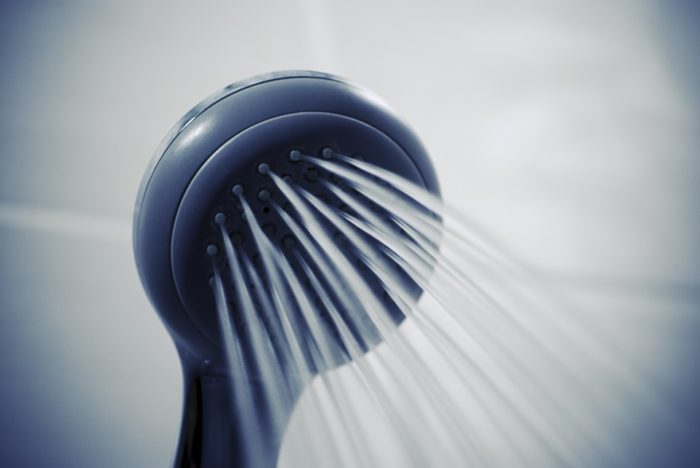

How often should you clean your drains?
February 2018
Cleaning out your drains is part of a group of menial tasks that often get put on one side, however, to do so can be very costly. Not cleaning out your drains frequently can have serious consequences to your drains and other peoples.
What goes down your drain extends beyond liquids, there are bits of food, shavings of hair, soap and shampoo’s, the list really does go on and on.
To make sure you know how frequently you should be cleaning out your drains, Drains Aid have been kind enough to put together a troubleshooter below. If you have any questions surrounding the article or about your drains in general, you should contact us on the details provided below.
To answer the question short and sweet, we recommend cleaning your drains every month. As a weekly job, it’s something that will end up becoming a chore and slowly but surely get weaned off the weekly to-do-list. However quarterly is too long, and what normally happens is people forget to clean their drains, and leaving them for such long periods of time results in damage and potentially expensive repairs.
To avoid this we regard drain cleaning as a monthly job. If you’re going to make a set schedule for when to be cleaning your drains, don’t forget to stick to it, as forgetting to cleaning your drains may be one of the chores that is of the upmost importance, particularly if you have drains that are prone to clogging. We believe that doing a little bit of work regularly, saves you from having to do big work when you finally get round to doing it.
Monthly drain cleaning allows for you to maintain safe and properly functioning drains that only require your attention 12 times across the year. With such easy methods out there to ensure your drains are tip top such as vinegar and baking soda, and boiling water, sticking to a routine should help to prevent you from ever having to make any major repairs on your drains. If regular drain cleaning methods are not solving any problems which you are having, make sure to contact us immediately. At
Drains Aid we have been in the industry for 45 years and have built up an admirable reputation across Leeds, Sheffield, Bradford and the rest of Yorkshire. If you have any queries about the above article or would like to get in contact with us for any other reason, call us on: 0800 0180123
Trapped dog freed after 3 days in underground pipe
February 2018
A dog, which spent three days trapped in an underground pipe, has been freed. A black cocker spaniel entered the drain in Abingdon on Saturday and then travelled over 100m in the pipe before getting stuck under an artificial pitch as it was blocked at one end.
The dog had entered the drain in the pursuit of another animal and Firefighters and staff from Thames Water were required to free the hound. A spokesperson for Oxfordshire Fire and Rescue Service said Spencer was trapped in an old drainage pipe which was about 12 inches (30cm) in diameter.
Their equipment was not suitable for the rescue so others efforts to free the dog begun.
Ms Wallis told BBC Radio Oxford they had “thought the worst” during the effort to find Spencer. “We have had upwards of 30 or 40 people traipsing through fields on Sunday, people turning up in the middle of the night”, she said. DrainsAid are delighted that the dog has been freed and would just like to remind people of the dangers of playing near drainage pipes. Not only are they unsanitary but they are also small and with blockages they can become a real hazard.


Who is responsible for your sewers and drains?
January 2018
It is never pleasant having to deal with problematic sewer or drain. Things can be made even worse when it is not clear who is responsible for resolving the issue which can prolong the amount of time it takes to get fixed.
Here is our guide to where responsibility lies, which usually depends on the location of the drain/sewer and the type of property in question: Sewers which belong to a public network are usually serviced by the water company in the area. This means that if any problems occur they would be the people to deal with them. Should an issue arise it is therefore important that you contact the local supplier and inform them of where exactly the problem is so that they are aware of it and can address it. Private sewers are found in places with several properties for example apartment blocks. If you own a property within a site like this, the cost of maintenance and any repair work falls with you, or jointly amongst other owners at the site is the sewer covers several properties within it. Property owners are responsible for the upkeep of the drains which lie within the boundaries of their home or business. This means that you are required to pay for any maintenance or repair work which is required. You are able to select the professional company that you wish to carry out this work if it is not covered by the building insurance you have. DrainsAid are based in Yorkshire and provide household and commercial drainage services throughout the UK. We are able to carry out CCTV surveys, re-lining, spray-lining, blockage clearances and planned preventative maintenance work. To arrange a callout or more information please get in touch with us by calling 0800 0180123.
Easy ways to unblock your drain
January 2018
The warning signs that a drain is blocked are pretty obvious. The water takes that bit longer to go down the plughole, you end up showering with a small pool of water at your feet, and then there’s that awful drain smell.
At DrainsAid we have been unblocking drains in the Wakefield and Leeds area for over 45 years, but to avoid you having to call out a plumber, we have made a small list of simple and cost effective solutions to unblock your drain. If the problem you are experiencing is not solved by these solutions below, then we would recommend seeking professional advice.
BOILING WATER
The simplest solution to a blocked drain is to boil a full kettle of water and slowly pour it down the drain. We recommend pouring it down in two or three stages, allowing time for the water to break down the blockage.
BAKING SODA AND VINEGAR
For a slightly tougher clog, mix together 1/3 cup of vinegar with 1/3 cup of baking soda into a larger measuring jug. The mixture will immediately start to fizz, so pour the mixture down the drain straight away as it is this fizzing of the chemicals mixing together that helps to break down the clog. Leave the mixture to sit in the drain for at least an hour, although the longer the better so overnight would be ideal, and then flush it down with hot or boiling water.
CAUSTIC SODA
Caustic soda is a particularly strong chemical, so before attempting to do anything, ensure that you have rubber gloves and some protective eyewear as it can cause serious chemical burns if not used with caution. Pour around 3.5 litres of cold water into a mop bucket, or similar, and then add three cups of the caustic soda. Mix the soda and water together well which should cause it to fizz and heat up. Pour the mixture down the drain and leave it to work for half an hour, washing it away with boiling water once the 30 minutes are up.
BENT WIRE HANGER
Although it may seem like a dated method of unclogging a drain, using a bent wire hanger is actually one of the most effective ways of removing any grime or a hair ball. Begin by straightening out the hanger, ensuring the hook at the top remains bent over, and then insert it down the drain pipe and begin removing unwanted grime. It is important to make sure that you are pulling things out of the drain rather than pushing stuff further in. Once you had removed as much grime as possible, run boiling water down the drain to flush away any loose bits.
Here at DrainsAid we have been helping people in Wakefield and Leeds with their drain issues for 45 years, building an enviable reputation in that time. If the problem you are experiencing persists after attempting the above solutions then you should contact us directly on: 0800 0180123.
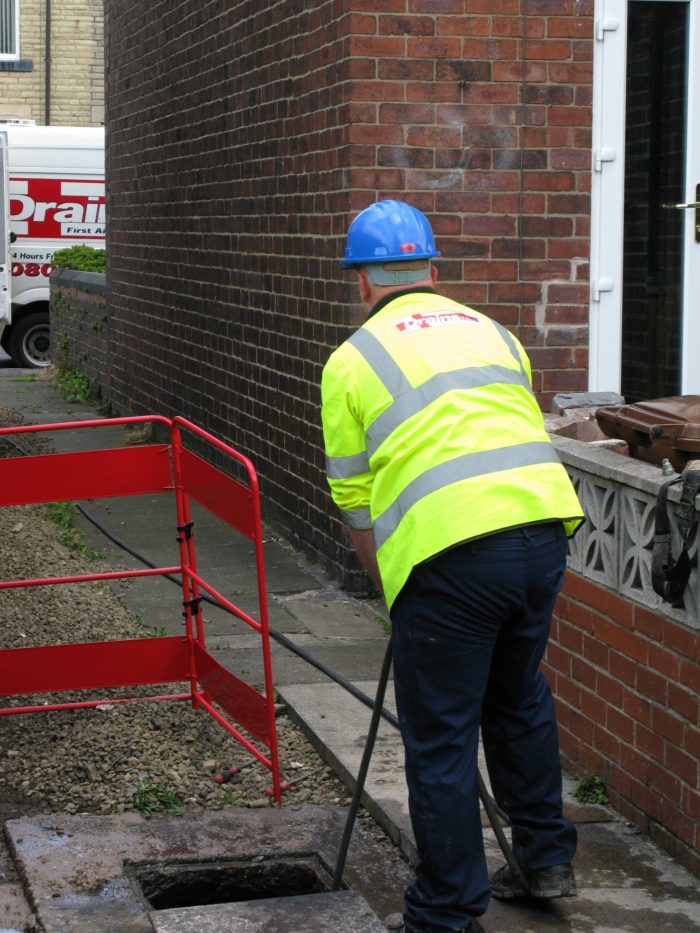
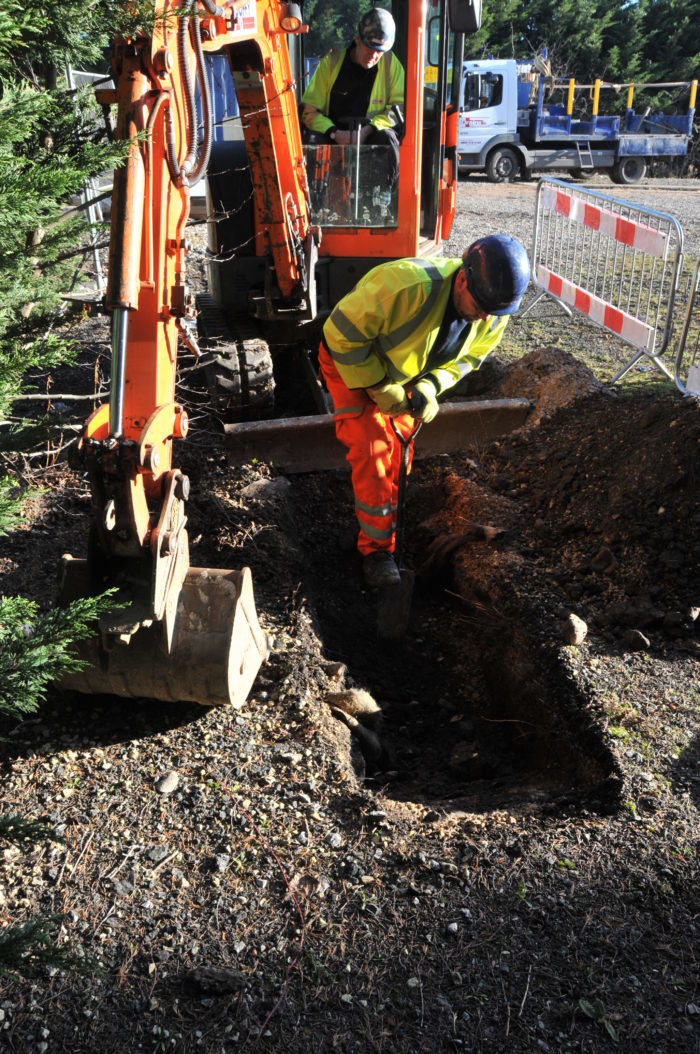
Common mistakes when installing drainage systems
January 2018
Whilst a house or commercial building’s drainage system is rarely seen by buyers it is one of the most important parts of the property for obvious reasons. Its location means that when it is fitted, this needs to be done correctly as mistakes are difficult to fix once the system has been built upon. When laying drains it is therefore important that the following are taken into account to avoid common mistakes occurring:
This may sound straightforward, but it is surprising how often a mismatch occurs. Before installation there needs to be agreement over the necessary diameter of pipe to be fitted. This should then be double checked against the one which is actually laid underground. Incorrect sized pipes can lead to drainage problems as blockages are more likely to occur. In turn this can lead to a higher chance of structural failure. For drainage systems to work effectively they need to be able to drain water away. In order for this to happen without the use of a pumping system it is therefore essential that they are fitted at the correct fall (angle) – that is at a suitable gradient which will enable waste to be carried away rather than sit in the pipe and risk causing a blockage. This is incredibly important, but often something that is overlooked with problematic consequences. The trenches where pipes have been laid must be filled in properly to prevent pipes shifting out of place. This is because if pipes do move there is the risk that they will no longer carry away waste water properly. If movement does occur this is very expensive to fix as well as problematic if the pipe is not accessible due to having being built upon. DrainsAid provide a variety of preventative and reactive drainage services across the UK. These include: high pressure jet cleaning, CCTV inspection, re-lining, robotic cutting and excavation repairs. For more information or to arrange a call out please get in touch today by calling 0800 0180123.
How do you know if you have a drainage problem
January 2018
At their best drainage problems are inconvenient, at their worst the damage they cause can be disruptive and expensive to fix. It is therefore really important to know how to spot the warning signs of a potential issue and how to act to prevent the issue escalating. Here are two common problems and what to do about them:
- Water draining too close to your property
- Overflowing gutters
If your gutters are overflowing then this is an obvious sign that something is amiss with your rooftop drainage system. Blockages are most commonly caused by a build-up of debris, particularly leaves, twigs and dirt. It is important to have a regular maintenance routine in place to decrease the likelihood of such clogging up occurring. You could carry this out yourself or get a professional company to carry out preventative work for you. If you drain are not blocked by any debris but they are still overflowing this could indicate another type of problem – that they are not pitched properly. This means that they have not been set at the correct angle and this will need rectifying by a professional in order for them to effectively be able to carry excess water away. DrainsAid provide preventative and reactive drain services throughout Yorkshire (Leeds, York, Wakefield) and the rest of the UK. We carry out drain cleaning, CCTV surveys, trenchless relining, robotic cutting manhole rehabilitation and excavation repairs. For more information or to book a callout please get in touch today on 0800 0180123.
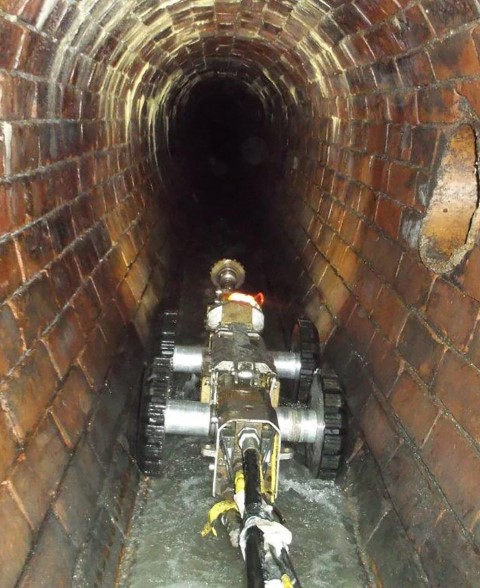

Merry Christmas from Everyone at DrainsAid
December 2017
The team at DrainsAid would like to wish you a very Merry Christmas and a Happy New Year. 2017 has been another good year for the business and we look forward to 2018. We would also like to remind our clients and potential customers that our emergency drainage offering will still be operations during the Christmas should you have an unexpected drainage issue. From everyone here, have a wonderful festive period and we look forward to working with you in 2018. We carry out works in York, Leeds, Wakefield and the rest of Yorkshire.
Shocking things found in UK drainage systems
December 2017
With it coming up to Christmas we thought we’d stay in a happy spirit and bring you some light-hearted news from the drainage industry. UK drainage systems, both commercial and domestic, have seen pretty much everything pass through them, including some outright astonishing items. Below are some of the shocking, wacky and wonderful things that have been found in drains and sewage systems in the UK. The team at DrainsAid have many years of collective experience working with drains and sewers in the UK. Whilst our team may have seen some pretty outrageous finds, none quite match up to a haul of expensive watches. The blockages can be wacky or funny, but on a serious note, large items can cause devastating damage to residential areas. If they block up the sewers and drainage system this can cause severe flooding after heavy rainfall. If you suspect you have a blockage then call the team at DrainsAid for an emergency response. We work across Leeds, Wakefield and York on a regular basis. Call us today on 0800 0180123.


City of York has 900 permanently blocked drains
December 2017
According to a study in York to improve the drainage system, the council has found that 900 drains are so badly blocked that they cannot be cleared, adding risk of flooding on some streets, The Council are mid-way through a two-year examination, looking at all the 42,690 gullies in the city to work out areas of improvement.
So far, of the 38,000 they have checked, over half of them have had a blockage of some sort.
Some of these are caused by general over-use whilst others have been earmarked as not fit for purpose and a widening of the drains will be required to allow them to work again. Most of the drains have become blocked by debris from tree roots, litter, leaves and mud, whilst others have been damaged by utility works. The major part of this investigation has been brought about after the city had severe floods a few years ago and a report was released which highlighted that the city would be unable to cope with heavy rain. In a statement, Councilor Andrew Waller, who is in charge of the environmental matters said: “The investment is showing positive results and I will certainly be pushing for this to be funded again in the budget next year, as it is an issue we have got to get on top of.” DrainsAid are committed to helping local councils in Leeds, Wakefield and Huddersfield improve the standards of the drainage network and have been working with many companies over the last few years improving the networks. If you would like to know more about the services we provide, please do not hesitate to contact our team.
Some ways to keep your drains cleaner
December 2017
Getting a blocked drain is something that many of us do not think about until it is too late, and we have a full-on problem. However, a bit of careful maintenance each day or week can help you reduce the likelihood of a blocked drain.
Below, our team of expert engineers have listed some of the easiest ways to keep your drains moving and prevent a full-on blockage.

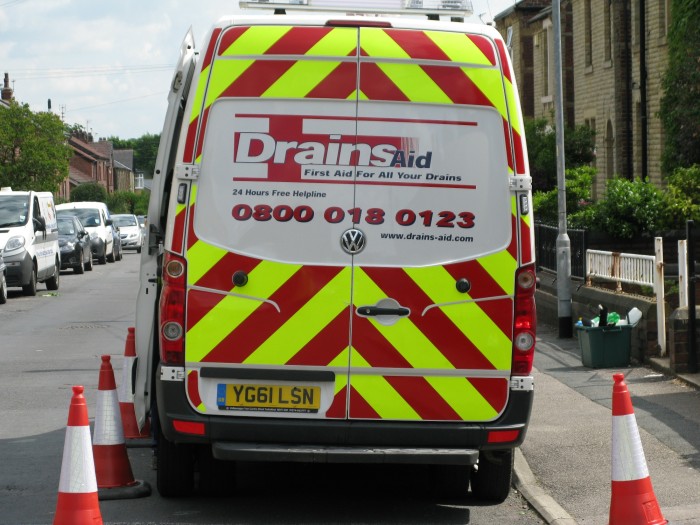
Avoid drain problems around Christmas
December 2017
Drainage issues over Christmas are surprisingly frequent and incredibly unfortunate. The combination of cold weather and an increase in drains usage often causes or worsens any problems with drains, particularly older drains.
To help avoid coming into any drainage bother, we have listed below some things to be wary of over the Christmas months and some tips to help prevent any problems from occurring or getting worse.
Warning signs of a main sewer problem
November 2017
If you are experiencing sewer drainage problems you should deal with them urgently as the problem can escalate quickly and end up being very costly. A sewer drainage clog could lead to a raw sewage backup coming out of the drains which could be incredibly expensive and also very damaging, leading to further repairs needing to be done.
To avoid any costly damage to your home, below are a few warning signs that you should look out for. If the problem cannot be resolved easily (i.e. by using a plunger or similar method), we recommend seeking professional advice, as these types of problems can be very complicated and should not be attempted by anyone other than professionals.
Clogged toilets or drains
The signs that you have a sewer drainage problem are normally pretty obvious, if the water in your drain or toilet is backing up or making any gurgling sounds, it will mean that there is some sort of blockage in your pipes. It’s important to remember that the pipes in your house are connected, so if there is a blockage it will affect more than one household appliance, for example, if the washing machine ends and the toilet starts to percolate there is probably something stuck in your pipes. If there is a blockage in the main pipe, this will affect all of the secondary pipes that come off it (i.e. the toilet, the sinks, the bathtub). However if the problem is isolated to a secondary pipe, it will only affect the appliance at the end of that pipe. That’s does not go to say that it doesn’t need fixing.
Tree roots
Often time’s tree roots go deep into the surrounding ground and end up crushing older sewage pipes when they reach them. The older pipes get weaker with age and collapse and then the tree roots grow into their place, leaving a clogged pipe. If your toilet bowl starts to make a gurgling noise or you notice that your drains have started to run slower, the most likely cause of this is that tree roots have got into your pipes and you have a sewer drainage problem. Failure to deal with this immediately can result in a complete sewer line block.
Release the pressure
We recommend not turning to chemicals if it isn’t necessary, instead, by filling your sink up to the top and letting it drain, the pressure of a full sink of water should help to dislodge any blockages or sediment build-ups. Do this a couple of times a month and your drains should remain clear.
Request a camera inspection
If you are experiencing any issues with your pipes that cannot be resolved by filling up your sink with water, you should ask a professional to see if they will perform a camera inspection – running a long cable through your pipes that as a camera at the end and can unsettle any blockages. Be wary of anyone offering a camera inspection before offering to clear the clog and use a different company. If you have any queries about this article or are experiencing any problems that haven’t been mentioned, contact us on: 0800 0180 123

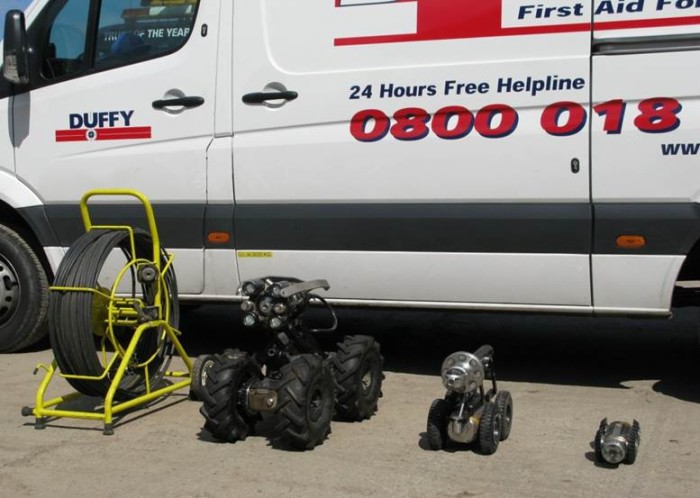
Avoid common winter problems
November 2017
With winter fast approaching, now is the time to check your drains to make sure they are in working order. Taking some time to inspect them now will help you to alleviate any small problems before they become big ones, saving you time and money in the long run. We recommend the following:
Identify at risk pipes
Cooler weather, especially freezing temperatures can mean that pipes are at risks of bursting if water within them freezes and then melts too quickly. A way to avoid this happening is to insulate pipes beforehand with foam. If you are not sure how to do this or which of your pipes might be vulnerable to freezing, contact a professional drainage company for help.
Check outside drains
It’s also important to check outdoor drains to ensure that there is no debris in them which will stop water easily flowing away. Common culprits are leaves and twigs and these need to be removed. If you cannot reach or see all of your drains or guttering considering getting a professional to access these areas and remove any blockages for you.
Get any small problems checked now
Whatever the season, it’s always a good idea to get any minor problems you’re experiencing checked out sooner rather than later. Drips, cracks in pipes and leaks are all issues that are easier to deal with the earlier they are spotted. They also mean substantial damage to your property or belongings is more likely to be avoided. If you are not confident carrying out repair work yourself contact a drainage company to do it for you.
DrainsAid provide both reactive and preventative drains services. We can carry out CCTV inspections, trenchless relining, robotic cutting and manhole rehabilitation too. If you are experiencing a problem with your drain and need some expert help please get in touch today on 0800 0180123.
Three top reasons for blocked drains
November 2017
Blocked drains are incredibly common and inconvenient, but in a lot of cases could be avoided. Here are some of the reasons why they become blocked as well as tips for prevention.
If you have a problem with your drain and are unsure of the cause it’s always best to ask an expert for help.
- The weather
Windy and wet weather can cause serious problems when it comes to blocked drains. A lot of rainfall often results in debris such as tree branches and leaves blocking pipes which means that water cannot flow away. This can lead to flooding and damage to property. It’s important that you regularly check outdoor drains for any build-up and remove it immediately.
- Flushed away items
Items that should not be put down the plug hole or flushed away in the toilet are common culprits or drainage problems within the home. In the kitchen, oil and leftover food can do serious damage, reducing the amount of water that can flow away in the pipes. In the bathroom, tampons, nappies, cotton buds and wipes are all things which should be thrown away not disposed of in the toilet.
- Damaged pipes
Another cause of a blocked drain could be a damaged pipe. This might occur simply due to the age of the pipe or as a result of the way it has been fitted. Another reason for damage may be tree roots. In each case, it is important to identify the exact location of the problem and deal with it before more damage occurs. DrainsAid are based in Wakefield, West Yorkshire and provide preventative and reactive drain services across the UK. As well as unblocking drains we can carry out drainage surveys, trenchless relining, robotic cutting and manhole rehabilitation. For more information or to arrange a callout please get in touch with our experienced team today by calling 0800 0180123.


How to maintain your drains
November 2017
Lots of things make their way into our drains, some things more obscure than others, so to avoid blockages DrainsAid have written down a few tips that you can do at home to make drain maintenance easy.
To save you calling out an engineer we recommend weekly maintenance, which can be as simple as pouring boiling water down your drains.
Below is a step by step guide to tackling a clogged drain, however if the problem persists we recommend calling a professional and DO NOT advise customers to attempt to make a repair themselves as this can be hazardous to themselves and others.
- Before you start any cleaning, make sure you have the tools needed for the job:
- Kettle
- Baking soda
- Baking crystals
- White vinegar
- Protective gloves and eyewear
- Empty bottle to collect excess fat
- If boiling water isn’t doing the trick, pour two tablespoons of baking soda down the drain, followed by approximately 300ml of white vinegar. The mixture will start to bubble and fizz, however do not worry as this chemical reaction is what will break down the grime in your drain.
- After leaving the mixture for approximately 10 minutes, rinse the drain with a kettle of water to help clear away the solution and rinse away any of the grime that has been broken down.
Alternatively, you can combine 300 – 500ml of boiling water with a cup of soda crystals and pour the solution directly into the plughole. This will help to get rid of any grease, fats or soap residue. To help reduce the clogging in your drains and to help improve the environment, we strongly encourage that any excess fats and oils left in cooking pans and trays be poured into a bottle and put in the bin. By being conscious of what you’re putting down your drains and following these steps a few times a year, your drains should stay clear and clean. For more information and call outs in the Wakefield and greater Yorkshire, call us on: 0800 0180123
Householders warned about 'blocked drain fraud'
November 2017
Householders with blocked drains are being warned to think twice before they employ Claim Management Companies (CMCs) to process their claims. The insurance company Direct Line has reported that over half of all claims being made by CMS firms are “invalid, inflated or fraudulent”
Many homeowners have invested in cover for their blocked drains as part of their home insurance. But sometimes a CMC will offer to handle the claims, which results in a significant sum being incurred on the homeowner.
The report from direct line says that some people end up paying thousands of pounds to such companies when they could contact their insurance company for no extra charge.


How to prevent blocked drains in older homes
October 2017
Nobody wants a blocked drain. Not only can overflowing water cause considerable damage, it can also leave extremely unpleasant smells both inside you house and outside it too if the drains are blocked there. Luckily there are some preventative steps which can be taken to reduce the likelihood of blocked drains at your property.
In the kitchen
As the old adage goes, prevention is better than cure. This definitely applies in the kitchen, where only water should go down the plug hole. Drainage pipes are not designed to transport food waste or grease away and so this should always be disposed of in a bin instead.
In the bathroom
Again, it is possible to avoid problems in this part of the house by only flushing toilet paper down the toilet. Other items such as nappies and sanitary products should be thrown away in the bin as should face wipes and cotton buds. Regular removal of hair from the shower tray is also a good idea to avoid it clogging up the drain.
Outside the house
Taking time to inspect any drains outside is also advisable to prevent materials building up and causing blockages. Make time to remove items such as leaves and twigs which can easily accumulate in guttering and drains. Other foreign objects such as footballs on roofs can also cause problems – regular checks can make sure that small issues do not escalate into larger ones.
DrainsAids are based in Wakefield and operate throughout the Yorkshire region and beyond. As well as offering a 24-hour household drain blockage clearance service we can all carry out CCTV surveys, provide drain re-lining and create new sewer connections. For more information or to arrange an appointment with one of our experienced technicians please call us on 0800 0180 123.
Top reasons your water drains are blocked and what to do
October 2017
Blocked drains are very problematic. Not only do they disrupt water usage within the building, they can also smell really bad too. Luckily there are steps that can be taken to deal with blockages as well as to help prevent them in the first place:
- In the kitchen
Grease is a common culprit in blocked drains in the kitchen. Whilst it may go down the pipe in liquid form, it can solidify quickly on the inside of it, reducing the capacity for water to flow away. Instead of pouring oil or fat away down the sink, put it in a jar in the bin. Scrape plates before washing to ensure scraps of food are thrown away not washed away too.
- In the bathroom
Toilet blockages can occur when incorrect items are disposed of in the toilet. These can include things such as face wipes, nappies and sanitary products. Only toilet paper should be flushed down the toilet with everything else thrown away in a waste bin. Shower drains can also become easily blocked in the bathroom due to hair clogging up the plug. Make sure you regularly remove this to stop it causing problems.
- Outside
In the garden, fallen leaves and other tree debris can often clog up outside drains leading to problems. Make checking and clearing drains and guttering part of a regular maintenance routine to avoid things building up over time. DrainsAid are based in Wakefield and provide commercial and domestic drainage services throughout Yorkshire and the whole of the UK. We carry out both reactive and preventative work including blockage clearing, CCTV surveys and drain repairs. If you are experiencing a problem and would like some expert help then please get in touch on 0800 0180 123.


Dealing with drains in autumn
October 2017
Autumn is the notorious season of blocked drains, more drain blockages occur during autumn than at any other time of year, and the culprit is falling autumn. As picturesque as autumn may be with the red, yellow and orange leaves, they can, however, be severely detrimental to our homes.
Drains are vital to your home or business because they carry waste water away from your home. Even a small blockage could cause unwanted problems but a seriously blocked system could force water back out, flooding the surrounding area or backing up your systems inside.
With this in mind, here are a few ways for you to defend against leaves this autumn.
Get stuck in The simplest solution is, unfortunately, to get messy and use a bit of elbow grease. By getting in the thick of it you can use your hands to pull out soggy clumps of leaves that clog your drains. Depending on how excessive the problem is, a shovel may even be needed. This may need to be repeated if you live in an area with lots of trees, but it is definitely one of the best techniques. Leaf blower Another effective method to prevent falling leaves clogging up your drain is to invest in a leaf blower. By blowing away huge piles of leaves before they get a chance to settle in your drains you can save a lot of more serious problems arising. Call a professional While proactive and reactive methods of clearing out leaves will help to avoid minor problems, unfortunately, it is impossible to stop all drainage issues, and blockages will inevitably occur. You cannot keep a 24-hour watch over your drains and while you’re at work or asleep, leaves will inevitably get blown into your drains. In these situations, the best thing to do is to call a professional blocked drainage specialist such as DrainsAid. DrainsAid uses their experience and expertise to safely and efficiently unblock your drains no matter how serious the blockage. For more information on domestic or commercial drainage issues, call a member of our team now on 0800 0180123.
Signs you have a serious drainage problem
October 2017
DrainsAid encounters blocked drains on a daily basis, but many Yorkshire residents do not recognise signs there is a serious drainage problem. It is sensible to familiarise ourselves with common signs of problems with our drainage system, so we can call in the DrainsAid experts without delay, to avoid possible damage to other parts of our home or business.
Signs of damp around or inside the basement are a sure sign there is a drainage problem. Buildings are designed to channel water away from the walls, through guttering, drain pipes, and storm drains.
If these become blocked or damaged, then water may run in through the foundations, causing damage to your walls, and possessions in the basement.
If the source of this water seepage is not immediately obvious, then you should call in the drainage team at DrainsAid, for a prompt inspection and diagnosis of the problem.
If you are able to inspect your guttering, you may be able to identify a common cause of drainage problems. Guttering may become clogged with leaves and debris, and require regular clearing and maintenance. If you are not able to do this yourself, the experienced drainage team at DrainsAid will return your guttering to working order in no time. Another sign to look out for which may indicate a serious drainage problem, is standing water on the ground around your house. A sudden downpour may cause temporary pooling, but this should be quickly channelled away, and if standing water persists, this may indicate a blockage in your drainage system. To check if your drains are blocked, call in the drainage experts at DrainsAid for a prompt assessment of your drainage system. If you notice damp inside your home, or a musty odour, this could indicate you have a drainage problem, which may require the attention of DrainsAid without delay. DrainsAid’s trained and experienced drainage team will carry out your drainage repairs promptly and efficiently, with minimum disruption to yourselves.


Top reasons your water drains are blocked and what to do
September 2017
Blocked drains are very problematic. Not only do they disrupt water usage within the building, they can also smell really bad too. Luckily there are steps that can be taken to deal with blockages as well as to help prevent them in the first place:
- In the kitchen
Grease is a common culprit in blocked drains in the kitchen. Whilst it may go down the pipe in liquid form, it can solidify quickly on the inside of it, reducing the capacity for water to flow away. Instead of pouring oil or fat away down the sink, put it in a jar in the bin. Scrape plates before washing to ensure scraps of food are thrown away not washed away too.
- In the bathroom
Toilet blockages can occur when incorrect items are disposed of in the toilet. These can include things such as face wipes, nappies and sanitary products. Only toilet paper should be flushed down the toilet with everything else thrown away in a waste bin. Shower drains can also become easily blocked in the bathroom due to hair clogging up the plug. Make sure you regularly remove this to stop it causing problems.
- Outside
In the garden, fallen leaves and other tree debris can often clog up outside drains leading to problems. Make checking and clearing drains and guttering part of a regular maintenance routine to avoid things building up over time. DrainsAid are based in Wakefield and provide commercial and domestic drainage services throughout Yorkshire and the whole of the UK. We carry out both reactive and preventative work including blockage clearing, CCTV surveys and drain repairs. If you are experiencing a problem and would like some expert help then please get in touch on 0800 0180 123.
What is Sewer lining?
September 2017
Sewer lining is a method of rehabilitating sewers and drains. It is carried out by placing a resin coated liner into the pipe which will stick to the inside of it and harden, meaning that the function of the sewer or drain is regained. Here are the main steps in the sewer lining process:
- Cleaning
First of all the drain is cleaned. This is usually done using a Jet Vac.
- Issues located
Using CCTV the inside of the sewer or drain pipe is examined in order to locate the problematic area(s). At this point, the junctions and connections in the pipe are also determined so that that can be reopened after the liner has been inserted.
- Insert liner
Once the CCTV survey has been carried out the resin coated liner is inserted into the pipe. The resin will stick to the pipe and become hard, allowing the ‘curing’ of the defective part(s) of the pipe.
- Reopen junctions and connections
The junctions and connections that were identified are reopened using a robotic device.
- CCTV check
After the four steps above have been completed a further CCTV survey is carried to make sure than the liner has been inserted correctly and that all openings are clear. DrainsAid provide a range of drainage and sewer management services to both domestic and commercial clients. Whether you require reactive or preventative work, our team of skilled engineers will make sure the issue is dealt with quickly and effectively. For more information please give us a call on 0800 0180 123.
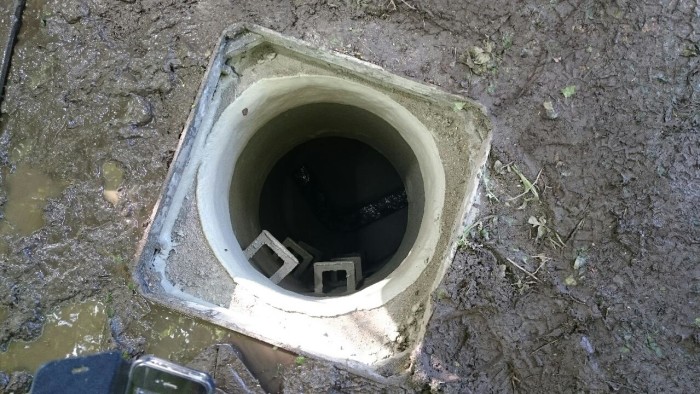

Dealing with drains in autumn
September 2017
Autumn is the notorious season of blocked drains, more drain blockages occur during autumn than at any other time of year, and the culprit is, of course, falling autumn leaves. As picturesque as autumn may be with the red, yellow and orange leaves, they can, however, be severely detrimental to our homes.
Drains are vital to your home or business because they carry waste water away from you home. Even a small blockage could cause unwanted problems but a seriously blocked system could force water back out, flooding the surrounding area or backing up your systems inside.
With this in mind, here are a few ways for you to defend against leaves this autumn.
Common causes of blocked drains
September 2017
Domestic drainage systems are notorious for blockages, most homeowners will experience a blocked drain on their street at some point in their life. This is widely as a result of people flushing common household items down the drains oblivious to the damage they can cause.
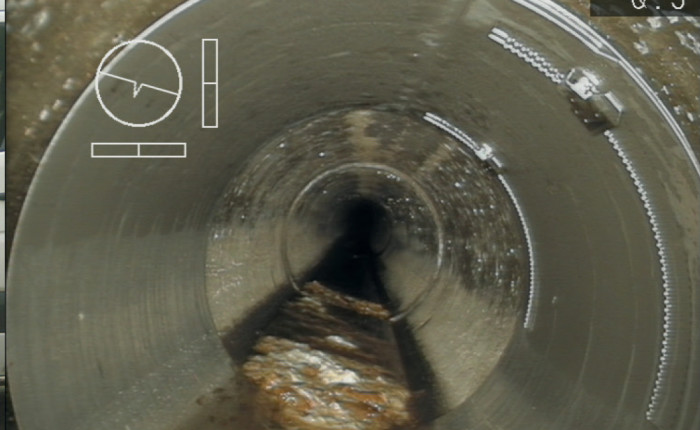

Why is drain maintenance important?
August 2017
Whether you are a home owner or manage a commercial property, it is equally important that you take the steps needed to look after your drain. Drainage problems can not only be expensive to repair but can also cause problems in terms of property damage and interrupting staff working time. Regular drain maintenance is important, whatever the building size or type, for these reasons:
- Prevents possible future problems
Prevention really is better than cure. Taking simple steps such as regularly cleaning the inside of kitchen pipes can help avoid the build-up of problematic substances such as oil and fat.
- You will be able to notice when something is amiss
If you know what your drain looks like normally, when something out of the ordinary occurs such as an unusual damp patch or a longer than usual drainage time then you will be able to recognise the difference immediately.
- Spotting problems early could save money later on
Knowing the signs to look for means there is more chance of noticing a problem earlier rather than later, which could stop it developing in something worse. Spotting an issue in good time means is can be dealt with quickly there and then rather than it escalating and the damage spreading further or having more serious implications on the property, your family or employees. DrainsAid are able to provide contracted maintenance services to businesses as well as domestic properties throughout the Yorkshire region and the rest of the UK. If you would like to learn more about these regular checks or any of the other services we provide, please contact us today by calling 0800 0180123.
£5.6 million pledged to help Lancashire roads
August 2017
At DrainsAid we like to keep up-to-date with all the latest industry news and development. This week we were pleased to hear that Lancashire County Council have pledged £5.6million towards helping to improve roads in Lancashire. The money, which is part of the revised 2017-2018 council budget, will be spent on several different projects. This includes £1 million to be put towards pothole repairs, which will be carried out not only to the affected area, but the surrounding road too. This should decrease the likelihood of repeat repairs being necessary in the long run. Another £1 million has also been earmarked for small road repairs, with the aim of ensuring these are carried out quickly and efficiently and before they escalate into larger, more expensive maintenance work in the long term. In addition, £3 million has been allocated for highways maintenance and in particular the maintenance of residential roads. Lancashire County Councillor Keith Iddon has recognised the importance of the work stating:


Early signs of a blocked drain
August 2017
Having a blocked drain is not a pleasant experience and can lead to long-term problems and damage if not dealt with swiftly. If you notice any of the tell-tale signs of a blockage such as bad smells, gurgling, leaks or water taking longer than normal to drain away in the shower or sink than it’s important to act quickly. We recommend the following steps:
- Try and identify where the blockage is
If possible, try and locate the blockage itself. In the case of the bathroom, this could be in the toilet pan itself or in shower tray – a build-up of long hair in the plug hole is a common culprit of slow water drainage. Outside, leaves or small branches could be blocking drains and guttering.
- Try and remove the blockage
The ease of doing this will depend on the type and whereabouts of the blockage. Using gloves may be the best idea rather than touching the debris itself. If you don’t have any rods, a wire hanger makes a good improvisation. A plunger will also come in handy, particularly for sinks and toilets.
- Seek the help of a professional
If you have not been able to locate the blockage or successfully alleviate it, at this point it is probably best to seek professional help. Companies specialising in drainage issues will be able to identify where exactly the problem is, what the best course of action is and what preventative measures can be put in place to reduce the likelihood of it occurring again. DrainsAid specialise in sewerage work including proactive and reactive repairs. From our base in Wakefield, West Yorkshire we undertake drainage operations throughout the UK. If you have a blocked drain and would like the help of an expert technician to resolve the issue please get in touch today on 0800 0180123.
How to unblock your toilet
July 2017
A blocked toilet is a fairly common problem in households, but can be dealt with quite easily if the following steps are taken. If however, you are unsure where the blockage is, or are not confident in trying to tackle it on your own then it may be best to ask a specialist for help.
- Remove any visible items causing the blockage
If you know what is causing the blockage and can see it, then removing it by hand is the best option if this is possible. Wear a pair of rubber gloves when doing this.
- Identify where the blockage is if possible
If you can’t see where the problem is, then you can try to resolve any issues in the pipe using drain rods or a wire coat hanger. You can also try using a plunger to ensure that the right pressure and vacuum is in place to work against the blockage.
- Try dissolving the blockage
If the toilet is still blocked you could try dissolving the blockage. Using hot water is one way of doing this, but something stronger, such as caustic soda may be needed if this is not successful.
- Ongoing issues
If you are frequently having issues flushing your toilet then it may be beneficial to get the system checked. It’s also important that only toilet paper is flushed away as other items such as face wipes, cotton buds and sanitary items will continue to cause blockages. DrainsAid are based in Wakefield and offer commercial and domestic drainage services across Yorkshire and the UK. We provide a 24-hour blockage clearance service as well as carrying out surveys, relining and planned preventative work. If you are experiencing problems in your home or business please get in contact today on 0800 0180 123 to find out how we can help.


How to prevent blocked drains
June 2017
Nobody wants a blocked drain. Not only do they cause a lot of hassle when they become clogged up, but they often smell very unpleasant too. Luckily there are several steps that you can take to avoid drains become blocked up in the first place. In the kitchen It’s really important to be wary of what you flush away down your sink in the kitchen. For example instead of flushing coffee grounds away, it is better to put them in the bin or add them to compost.
Top reasons why drains get blocked
April 2017
No-one wants a blocked drain. If left untreated problems can escalate and blockages or leaks can cause damage to your property or business as well as cause unpleasant smells. The longer an issue is left undealt with, the more difficult or costly it can be to fix too.
Over the years DrainsAid have helped many customers in the Yorkshire area with both their domestic and commercial drainage concerns. We have spotted some common reasons for blocked drains during this time.
Here we list some of the most frequent causes as well as the steps you can take to try and avoid them.
Bathroom and toilet drains
Problems with drainage in the bathroom are most like to be caused by incorrect items being flushed away. These objects include face wipes, nappy wipes, cotton buds and sanitary products. Hair can also be a problem in showers where it clogs up the drain and obstructs the flow of water. To avoid blockages in the toilet it is important only to flush toilet paper away. All other items should be disposed of in a bin. It is also advisable to regularly check the shower tray for strands of hair and make sure these are removed and put in the bin too.
Kitchen drains
Blockages in a kitchen sink are generally caused by two different factors. Firstly, problems occur when grease or oil is poured down the drain. This can stick to the inside of the pipe and make it difficult for water to flow away. The second culprit is food debris. Here, small food items that are washed away can become attached to the pipe wall, limiting the capacity it has to carry waste water away.
To help prevent drainage problems in the kitchen, dispose of cooled oil in a container in the bin as well as take care not get food in the sink – scrape plates carefully before washing them. For help with your commercial or domestic blocked drains please contact us on 0800 0180123.
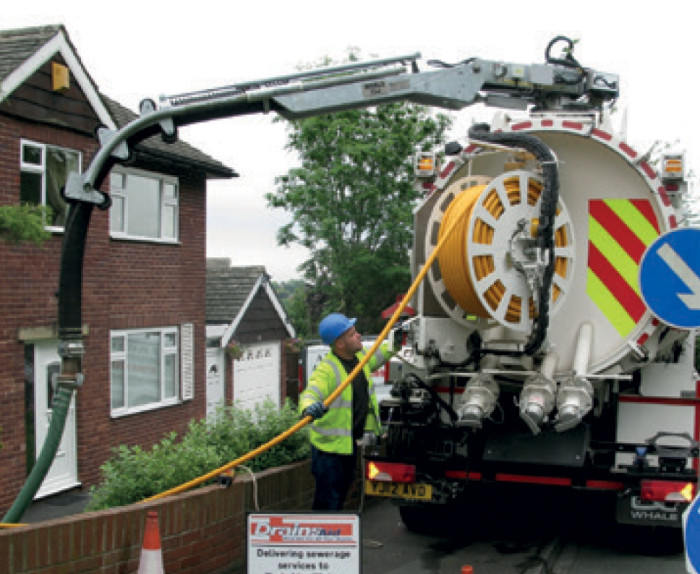
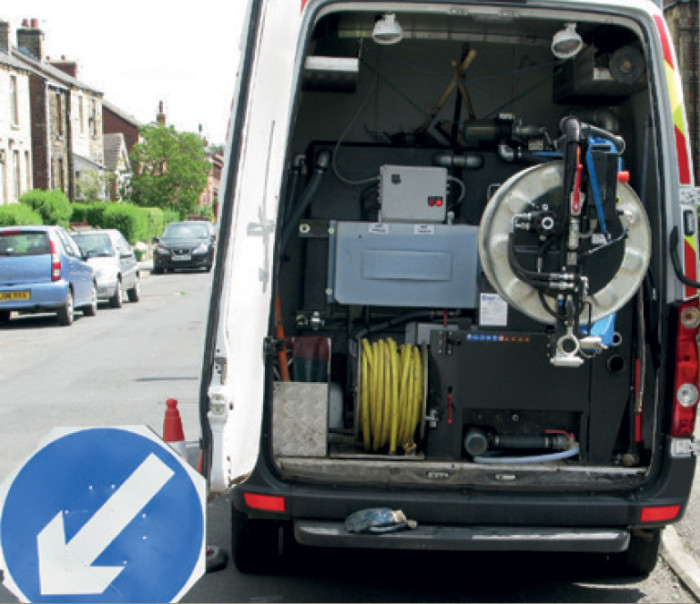
Problems with roadside drainage
April 2017
A recent poll carried out by leading motor organization, the AA has suggested that drainage on both main and local roads up and down the UK is a problem throughout the whole year – an issue that could be down to a lack of maintenance, said our Yorkshire drainage team.
According to AA members who took part in a recent Populus poll, many believed that road drainage was no better in the summer than it was during bad storms in the winter, with over flooding causing puddles that are a threat to drivers all year round.
- Surveys – we offer regular maintenance checks that capture and record in a detailed report, with DVD feedback, providing a visual and accurate assessment on the state of the drains looked at.
- Push Rod System – If we find that there is an area of a drain particularly hard to check, we use our advanced push rod system, which is a 100 metre CCTV fiberglass which is able to inspect pipes range from 50mm to 225mm, as well as negotiate multiple bends in very tight spaces.
- Main Line Crawler – DrainsAid have invested in a main line crawler surveying CCTV camera that allows CCTV surveying in pipes up to 2.8 metres in diameter. It offers 360 degree viewing and allows for 600 metres of unbroken pipework to be surveyed in one go. Furthermore, the full pan, titl and rotating camera produces superb images of the pipework.
- Trenchless Re-Lining – We are an industry leader when it comes to repairing damaged drains without the need for excavation thanks to our innovative trenchless re-lining technology. For more information please see our website here.
If you are a local council or authority, and you would like the expert advice of our Yorkshire drainage and blocked drains experts, please call 0800 018 0123 for more information on our flexible maintenance contracts. Our drainage team is able to offer tailored contracts that meet your requirements, with monthly or annual site visits, either in working hours or out of them to work around any site restrictions.
